#every time i go for a follow up it costs me $20 for the visit and then $50 for x rays lol
Text
so far my broken foot has cost me about $500 and I might have to pay another $200 for the initial urgent care visit AND I'm supposed to do physical therapy 👍
#every time i go for a follow up it costs me $20 for the visit and then $50 for x rays lol#i always make such expensive mistakes
7 notes
·
View notes
Note
HLC react to MC bringing them to a sex shop to find new toys/lingerie???
OMG I love this! I'm gonna have so much fun with this
HLC react to MC bringing them to a sex shop to find new toys and lingerie
Warnings: 18+ topics, the gang is 20+ years old btw, everybody is thirsty, Leander slander
Sebastian Sallow - His jaw is practically on the ground as you approach the shop entrance and he realizes what all the X's above the door mean. He's giggling like a schoolgirl as you drag him to the lingerie section, his head on a swivel trying to take everything in. "MC, babygirl, are we here for something in particular or should we just buy one of everything?" He's winking at you so much you almost wonder if he's having a stroke and there is an undeniable tent in his pants the entire time. As you leave you tell him you’re shocked he didn’t try anything in the dressing room. He admits it was a missed opportunity and will definitely do it next time, part of him wanting to demand you go back so he can correct this unthinkable situation.
Garreth Weasley - He’s shocked at the selection they have, and he follows you around as you try to look for a spicy new outfit. He plays with the thongs displayed on a table, twirling them around his fingers, accidentally sending one flying as he tugs on the straps. He’s much more behaved as you browse the toys, until he sees the jeweled butt plugs. He eagerly digs his hands into the bin looking for one with a red, heart shaped rhinestone, spinning around to face you when he finds one, his brows raised and a wicked grin on his face. “Oh you are so getting this, baby!”
Poppy Sweeting - She’s not quite sure why you brought her here. She feels very uncomfortable, but can’t help looking at the shelves as you slowly wander the aisles. When you make it to the dildo/strapon aisle you notice her falling behind as you keep moving, her shoes squeaking as she stops in her tracks in front of a mannequin wearing a strapon harness with a huge dildo, biting her lip. She eagerly grabs the packages off the shelf and you step close, peering over her shoulder. “Who exactly is that for?” you ask with a small chuckle. “You or me?” She spins around, taking you off guard, gently pushing you up against the opposite shelf. “ME.” Her lips crash onto yours, and you stand there making out as she rubs herself on your thigh.
Imelda Reyes - She is the one insisting you visit the shop. Once she gets inside her cheeks flush at the lingerie displays, desperately biting her tongue to keep from begging you to get some. While you browse the toy selection she complains at every one you pick up, insisting she could do a better job of pleasing you than “a cheap, mass produced toy ever could, MC!” You convince her to try a clitoral suction toy and a few hours later she’s screaming too much to eat her words as she has her fourth orgasm from the toy, squirting all over your face.
Natty Onai - She’s the most eager of everyone, running around the store picking up toys left and right, almost shouting “We’re trying this, MC, I’m not letting you say no.” She’s asking the teenage clerk for advice and info, making you want to hide your face. When she finally makes it to the lingerie section it gets worse. She’s picking out things for both of you, pouting when you say you don’t like the style or color. It takes her three armfulls to unload the cart and the final cost is outrageous.
Leander Prewett - He turns into a cocky bastard when you step into the store. “Oh these are great, MC, we should try them.” You roll your eyes at him, knowing full well he has NO experience with the cockring he’s holding. He gets upset when you pick up a dildo that’s larger than him, insisting “bigger isn’t always better”. When you make it to the lingerie he clams up, running his fingers over a lace teddy as if it’s an everyday object he couldn’t care less about. “Whatever you want, MC, you’ll look spectacular in any of it.” Constantly shifting around and adjusting his pants.
Amit Thakkar - Is so overwhelmed he has to wait outside. You’re about to check out when the door to the shop flys open and he charges inside. “Okay, I’ll give you ten minutes to show me things before I leave again, MC.” He steps close, whispering in your ear. “I’m only doing this because I love you…and I can’t stop thinking about you wearing the blue lingerie set that caught my eye before I ran out earlier.”
Ominis Gaunt - Blushes so hard you’re worried he’s going to pass out as you explain what all the toys do. When you get to the bondage gear his demeanor changes. He insists on holding the leather cuffs and whips as you describe them. He asks you to describe certain items in more detail when you awkwardly trail off, getting excited by his interest. He teasingly asks if you’d like him to use any of it on you, and calls you a naughty girl when you stutter out a soft “yes”. When it comes time to pick out lingerie you know he likes the feel of lace and silk, and pick out a few outfits that leave you modestly covered. He hums his approval of them, wishing he could feel them on your body instead of on a hanger. Once you’ve paid he rushes you out of the store, desperate to try out your new purchases.
#so much leander slander in this one#sorry not sorry#sebastian sallow#ominis gaunt#garreth weasley#natty onai#poppy sweeting#imelda reyes#amit thakkar#leander prewett#hogwarts legacy#hogwarts legacy characters#HLC reactions#sebastian sallow headcanon#ominis gaunt headcannon#garreth weasley headcanon#natty onai headcannon#poppy sweeting headcannon#amit thakkar headcanon#leander prewett headcanon#hogwarts legacy headcanons
137 notes
·
View notes
Text
Excerpts’ Eunuch Besties Chapter 20 - Tabitha/Gerri
“Well that was brief” Gerri opened the door for Tabitha just as Roman had previously done for her. The blonde nodded appreciatively and walked in, her long grey coat hanging from her shoulders.
“Sure it was. I came just for the moral support” She moved as a person who owns the place, as somebody who has nothing to lose and everything to gain. People like this popped in and out of Gerri’s life and she accepted it as it was. The perks of coming from money entailed a whole language she had learnt more than two decades ago, and the mischief emanating from Tabitha Hayes did not astonish her one bit.
“Right, an easy transaction missy” She walked behind, closing the window door and following the woman like a shadow, almost getting a faint remnant of the perfume that lingered in Roman’s space. Gerri quickly gathered the pieces, the pantomime of a performance dully compromised by every possible trick, the make-belief in process. The woman admired her, and the lengths she seemed willing to go for Roman’s benefit.
At least and last, somebody had.
Once she sat behind her desk and moved the mouse off her desktop computer, closing files she heard Tabitha almost giggling “Aren’t you happy to see me?”
Gerri measured her boldness and fixed her eyeglasses, pretending to stare at the computer screen and the clean desktop, no files scattered at all.
“You’re playing with fire coming here. I don’t see what you’re gaining from it” The way the tall woman just shrugged and sat in front of her, licking her lips reminded Gerri of Kendall’s friend Stewy. Both had the same non-chalant behaviour, that I don’t give a fuck presence that made them terribly annoying and impossible to ignore.
Tabitha leaned from the other side of the desk, blinking slowly “Come on baby, I know you’re happy to see me”
Gerri stared at her, composing herself from the sudden memories vanishing her self-control. They hadn’t talked more than a handful of times but in each meeting, she had not been oblivious to Tabitha’s lingering eyes and in each of those instances she had taken the easy way out. A non-existent phone call to attend, an impending meeting with any name at the time popping into her head, either Karl or Frank. It was not by far the first time another woman approached her, but when you consider yourself irrevocably married to your work there was little to do. Especially if the said woman was in an on-and-off-again relationship with your boss's most fucked up son.
What had she called themselves?
Ah, yes.
Eunuch Besties.
The blond’s wit pissed Gerri a little.
“Honey, you’re barking at the wrong tree” She also leaned, as if brushing off any kind of nervousness Tabitha thought was provoking her.
“Mmmh so they say” Tabitha’s subtle red lips curled while she kept her eyes fixed on Gerri’s “Before they go out to eat” She seemed aware of her cockiness as her eyes playfully looked down for some seconds to come back to drill at Gerri’s face.
“Really? Isn’t Roman more suited to grab food on the go? Now that you both looked so– well, adjusted together” Tabitha laughed almost tasting victory between her lips “And if you’re hitting at me then you really must be bored. Waystar isn’t the place for girlfriends to visit, too collared, too bland”
“Come on Gerri, don’t play with me, you’ll make me believe there’s some jealousy here or what?” The older woman almost rolled her eyes and stopped herself from doing it, avoiding at all costs bringing to life fantasies from a not-so-distant past, from the egotrip it was to get to pull at Roman’s leash “Let me treat you, after all, hell got to lose here, didn’t it?” Both women stared at each other, in a complicit sudden silence trying to read the other’s intentions, to play the game by the book and get the upper hand.
Gerri pondered for a couple of seconds her options: would it be wrong to accept a beautiful woman’s flirty attempts to seduce her, even when said woman must be really fucked up to pretend to date a clearly, obviously closeted gay man? But then again, shit was hitting the fan, Waystar was at only a couple of months to be dismantled by GoJo and well…
“Tomorrow’s lunch”
“And then dinner”
Gerri almost laughed, deeply enjoying Tabitha’s charm. Whatever the young woman was after, it didn’t hurt to pry too. “
#ao3 writer#fanfic#ao3fic#succession#roman roy#eunuch besties#romencken#roman x jeryd#jeryd mencken#musing about this fanfic#I am crazy about Tabs/Gerri#this was super random but I loved it#Tabs is my spirit animal#this woman is everything#tabitha succession#tabitha hayes#gerri kellman#tabs x gerri#Gerri x Tabitha
3 notes
·
View notes
Photo

High-end installer, Chris Halifax, makes it personal with Schlüter
After a few years in the making, Chris concludes that his new en-suite is “our dream come true. A lot of planning, designing and effort has gone into every detail. Next up is the main bathroom that will feature even more exciting ideas and will push my own skill levels and boundaries. Schlüter is key to my work.”
Chris Halifax of CTH Creations, has carved himself a reputation for his incredible attention to detail and quest for perfection in all his work. He regularly shares project updates on his social media, attracting thousands of followers. In his own words, Chris creates “unique and one-off bathroom designs which turn dreams into reality with the highest of standards.”
And for all things tile protection, Chris’ go-to supplier is Schlüter-Systems – the largest and most innovative manufacturer of system solutions for the function, protection and decoration of tile and natural stone in the world. The key advantage of specifying Schlüter-Systems is the opportunity to utilise the wealth of experience gained by the UK team over the last 30 years providing integrated system solutions for the bathroom designer and installer, developer, architect and specifier.
Having completed various stunning bathrooms over the years, Chris recently turned his attention to his own home, an 1840’s, two-bedroom cottage in Holmfirth. Chris doubled the size of the property with an extension, which included a luxury en-suite, to the side and rear. After already working with Schlüter-Systems products for around three years, Chris had no hesitation in using them in his own home, “I always install the highest quality products and have found Schlüter products extremely reliable and easy to work with; I find that the premium quality of Schlüter products is worth every penny.”
Treating his own en-suite as a chance to showcase his fine work and expertise, Chris fitted various Schlüter products, including Schlüter-DITRA-HEAT. Installed throughout the entire floor area, including the shower, the DITRA-HEAT Peel & Stick version was used for speedy installation and the elimination of cold spots. Two areas of the walls, where the towel rails and robe hooks are placed, are heated so that the family can enjoy super warm towels!
Although any electric underfloor heating system costs money to run, Chris recommends finding a running schedule for when the occupants are most likely to be in the space. “In reality, people are not in the bathroom all of the time. I run my system from 5.30am to 9am in the morning when we’re getting up and ready and then from 6pm to 11pm in the evening too. I have the temperature set at 19°C and it costs me around £20 a week to run. With the Schlüter thermostats, I can see the cost and energy output so there are no surprises with my energy bills.”
For added stunning touches, the modern LED-technology Schlüter-LIPROTEC was used in the form of prefabricated niches, with Chris adding an extra LED strip so that both shelves were illuminated. Chris also created a feature by running LIPROTEC around the bottom of the walls.
Chris continues to use Schlüter as “it’s important that the products are top quality; but the people in a business are also important. I’ve always had fantastic support from the Schlüter team. They are knowledgeable, easy to get on with and can’t do enough to help me if I have any questions.”
For further information, call 01530 813396 or visit https://www.schluter.co.uk/
0 notes
Text
Embark on an Unforgettable Journey to China: Discover, Explore, and Cherish the Moments
Something about the beginning.
Last winter break, I returned to my home country and embarked on a trip to Beijing, a journey that left me thoroughly satisfied. All the photos were taken by me, which means I hold the copyright to these images. Furthermore, for various reasons, I felt compelled to pen a blog post from the perspective of an international student, sharing my love for traveling in China.
In December 2023, I traveled to Beijing to meet up with friends. Over the next few days, we planned our itinerary and decided where to go and what to see. It happened to be quite chilly those days, and a few days later, it started snowing.
The snow-covered ancient Chinese architecture was incredibly beautiful, although my photos only captured a fraction of its beauty. If you were to experience it in person, you'd surely capture even more stunning images.
Attention! All photos were taken by me. I own the rights to use these photos.
Here are some places I recommend in Beijing:
Tiananmen Square

A place to witness the founding of the PRC. The beginning of a miracle.
2. The Forbidden City







I didn't take a lot of pictures as this was my third time here. There is a lot of space inside. A collection of the best of classical Chinese architecture. This is one of the must-see places when you come to China.
3. The National Art Museum of China


Okay, I can only take a picture of the outside because I don't have the rights to the pictures inside. While it's really interesting and I wish more people would come here to see them. I've heard from friends that every once in a while there's a new batch of artwork.
4. Shichahai




I have a question. Why these photos are so unique on my phone and so common on this website?
5. The Summer Palace
















So vivid and serene. While it's soooooooooo cold here.
If you've read it this far, maybe you are interested in a trip to China. Whether you're already planning or just contemplating, here are some simple reasons and tips why you should consider visiting China. I hope the following points pique your interest.
A few reasons why you ought to travel to China:
1. Favorable Exchange Rates. The exchange rates make purchasing goods in China incredibly affordable for visitors from certain countries. For instance, while dining out in other countries might cost 50 AUD per person, in China, it could be as low as 50 RMB (approximately 10 AUD), or around 100 RMB (approximately 20 AUD) for a nicer meal.
2. Entertainment in China. Many restaurants remain open until midnight, offering a vibrant nightlife scene, particularly in major cities like Shanghai, Changsha, and Guangzhou.
3. Scenic Beauty of China. China boasts vast and diverse landscapes, with many scenic spots internationally renowned but countless more lesser-known gems waiting to be discovered. Unfortunately, I don't have photos from my trips to Yunnan, Guizhou, Sichuan, and Tibet stored on my phone, but they left me awe-inspired.For those interested, I found a multilingual tourism website showcasing China's scenic attractions:
Yunnan: https://cn.tripadvisor.com/Tourism-g297467-Yunnan-Vacations.html
Guizhou: https://cn.tripadvisor.com/Attractions-g297421-Activities-Guizhou.html
Sichuan: https://cn.tripadvisor.com/Attractions-g297462-Activities-Sichuan.html
Xizang: https://cn.tripadvisor.com/Tourism-g294222-Tibet-Vacations.html
4. Unique Historical and Cultural Atmosphere. Each city in China has its own unique urban planning and development. My favorite places to visit are the museums in each province, where the history and evolution of the cities are depicted. Additionally, these museums house a plethora of artifacts related to Chinese history and culture, each representing the ingenuity and labor of ancient Chinese people. Every visit leaves me in awe of how intricate and perfect these ancient artifacts are. Here are some Chinese museums with multilingual introductions:
National Museum of China: https://en.chnmuseum.cn/
Capital Museum: https://en.capitalmuseum.org.cn/#/Layout/Home
Henan Museum: https://english.chnmus.net/
Hunan Museum: https://www.hnmuseum.com/en
Nanjing Museum: https://www.njmuseum.com/en
5. Culinary Delights of China. China's vast territory means each city has its own unique culinary specialties and food culture. As an international student, I particularly enjoy delicious food, and I find that the food in China surpasses that of most Chinese restaurants abroad. The reasons could be due to differences in ingredients and cooking techniques. For instance, ingredients not found locally in Australia and restrictions on using high flames for stir-frying to prevent fires.
Here's a link to a vlogger I personally enjoy, Amy. She's an Australian who loves Chinese cuisine. Watching her food adventure series always makes me happy and at the same time I was very hungry. Most importantly, I'm often amazed that despite growing up in China for over twenty years, I've never heard of or tried many delicious dishes she showcases. Watching her food videos is a true delight.
Here's the link to Amy's channel:
Some important tips for foreigners:
1. Register on WeChat and Alipay. These are the most common payment methods in China. You won't need to carry cash or coins, just remember to bring your phone with a linked bank card. You can use it for all transactions in China. Such as using QR codes for public transportation and making payments when purchasing items.
2. Check the opening hours and reservation requirements for all attractions in advance. For instance, in Beijing, most attractions require tickets to be purchased one day in advance, and some popular attractions may even sell out.
3. People in China are generally friendly and helpful towards foreigners. Some young people in developed cities speak English, such as Beijing, Shanghai, Guangzhou, and Shenzhen. However, in my experience, older people are more willing to communicate. If you are a foreigner, you can use a translator to communicate with them. Some may even escort you to your destination if they fear you might get lost. However, please note that there are good and bad people everywhere, so always prioritize your safety.
4. How to plan your itinerary. Chinese people often use the app "Xiaohongshu" (Red) for travel guides. Unfortunately, it doesn't have an English version, but you can use translation software to search for keywords in Chinese and translate the information into English. Although this may be a bit cumbersome, it's an effective way to find some useful information. If you have a Chinese friend, you can delegate this task to him or her.
5. How to find good food. If you love Chinese cuisine and want to try it, you can use the app "Dazhong Dianping" (similar to Google Maps but for food) to find restaurants. Unfortunately, it also doesn't have an English version. However, I found a website that offers multiple language options and integrates information on Chinese cuisine, attractions, and hotels. Please be cautious of advertisements: https://cn.tripadvisor.com/
Another simple way to find delicious food is to communicate with locals. Don't be shy. Remember, food is very important to Chinese people, so their favorite restaurants must have good reasons for it. You can try to trust them.
These are some reasons to visit China and a few tips for foreigners traveling to China. If you find this helpful, feel free to leave a comment, like, or share. Looking forward to your actions!
#travel#travel photography#traveling#travel blog#destination#wanderlust#china#trip#tourism#photography#my photos#places#picture
0 notes
Text

FORSAKING ALL FOR JESUS CHRIST -- KJV (King James Version) Bible Verse List
Visit https://www.billkochman.com/VerseLists/ to see more.
"Think not that I am come to send peace on earth: I came not to send peace, but a sword. For I am come to set a man at variance against his father, and the daughter against her mother, and the daughter in law against her mother in law. And a man's foes shall be they of his own household. He that loveth father or mother more than me is not worthy of me: and he that loveth son or daughter more than me is not worthy of me. And he that taketh not his cross, and followeth after me, is not worthy of me."
Matthew 10:34-38, KJV
"Then one said unto him, Behold, thy mother and thy brethren stand without, desiring to speak with thee. But he answered and said unto him that told him, Who is my mother? and who are my brethren? And he stretched forth his hand toward his disciples, and said, Behold my mother and my brethren! For whosoever shall do the will of my Father which is in heaven, the same is my brother, and sister, and mother."
Matthew 12:47-50, KJV
"And every one that hath forsaken houses, or brethren, or sisters, or father, or mother, or wife, or children, or lands, for my name's sake, shall receive an hundredfold, and shall inherit everlasting life."
Matthew 19:29, KJV
"And Jesus answered and said, Verily I say unto you, There is no man that hath left house, or brethren, or sisters, or father, or mother, or wife, or children, or lands, for my sake, and the gospel's, But he shall receive an hundredfold now in this time, houses, and brethren, and sisters, and mothers, and children, and lands, with persecutions; and in the world to come eternal life."
Mark 10:29-30, KJV
"Now the brother shall betray the brother to death, and the father the son; and children shall rise up against their parents, and shall cause them to be put to death. And ye shall be hated of all men for my name's sake: but he that shall endure unto the end, the same shall be saved."
Mark 13:12-13, KJV
"And he said to them all, If any man will come after me, let him deny himself, and take up his cross daily, and follow me. For whosoever will save his life shall lose it: but whosoever will lose his life for my sake, the same shall save it."
Luke 9:23-24, KJV
"Suppose ye that I am come to give peace on earth? I tell you, Nay; but rather division: For from henceforth there shall be five in one house divided, three against two, and two against three. The father shall be divided against the son, and the son against the father; the mother against the daughter, and the daughter against the mother; the mother in law against her daughter in law, and the daughter in law against her mother in law."
Luke 12:51-53, KJV
"If any man come to me, and hate not his father, and mother, and wife, and children, and brethren, and sisters, yea, and his own life also, he cannot be my disciple. And whosoever doth not bear his cross, and come after me, cannot be my disciple. For which of you, intending to build a tower, sitteth not down first, and counteth the cost, whether he have sufficient to finish it? Lest haply, after he hath laid the foundation, and is not able to finish it, all that behold it begin to mock him, Saying, This man began to build, and was not able to finish. Or what king, going to make war against another king, sitteth not down first, and consulteth whether he be able with ten thousand to meet him that cometh against him with twenty thousand? Or else, while the other is yet a great way off, he sendeth an ambassage, and desireth conditions of peace. So likewise, whosoever he be of you that forsaketh not all that he hath, he cannot be my disciple."
Luke 14:26-33, KJV
If you would like more info regarding the origin of these KJV Bible verse lists, go to https://www.billkochman.com/VerseLists/. Thank-you!
https://www.billkochman.com/Blog/index.php/forsaking-all-for-jesus-christ-kjv-king-james-version-bible-verse-list/?feed_id=121675&FORSAKING%20ALL%20FOR%20JESUS%20CHRIST%20--%20KJV%20%28King%20James%20Version%29%20Bible%20Verse%
20List
#All_Posts#Bible_Verse_Lists#bible#bible_study#bill_kochman#bills_bible_basics#forsake_all#forsaking_all#king_james_version#kjv#leave_behind#list#scripture#scriptures#topical#verse#verses
0 notes
Text
As You Blog More, Why Do Searchers Find Less & Less Of Your Blogs?
youtube
First, if you are growing a blogging site and are monetizing it by eCommerce, ad revenue or affiliate revenue, you want to go to https://flareAI.co/wordpress.html and find out how much of your blog pages are missed by searchers on Google.
As Your WordPress Site Grows, Why Does Google Find Less & Less Of Your Blogs?
There are over 2 billion+ domains to index today. The number of blog pages is trillions & exploding every day.
Google has to visit these 2 billion+ domains regularly, and crawl them. Yes, Google is a humongous company. But it is a daunting task even for Google.
Google allocates a specific time and resource for each domain, called Crawl Budget (time).
As your WordPress Site continues to add products, the Crawl Budget (time allocated) generally remains the same.
"Just because my site added 100s of new blogs this month, Google's algorithm won't dedicate their entire weekend just for me"
"Yeah, yeah I know I am important. But please understand Google treats almost all VIPs the same way"
The Google's crawl budget allocated for your WordPress site, will probably remain more or less the same.
As your WordPress site grows, the limited "crawl time budget" forces Google to start cherry-picking what it can index (find) or cannot index (find) within the allocated time.
This causes the slow decline of the indexed (found) percentage of your site. Over time, searchers will find less and less of your site on Google Search.
This means your monetization (ad revenue, affiliate commissions) will not keep up with your growing cost of new content. Content may grow, but traffic will shrink!
Know instantly if your WordPress Site has this critical problem. Go to https://flareAI.co/wordpress.html
As Your Blog More, Why Does Google Find Less & Less Of Your Blogs?
The flareAI Fast Answers Series for Bloggers, and Mid-market & Small Ecommerce businesses
Welcome to the flareAI family!
Receive more, follow flareAI
Get free sales & traffic revenue from Google, Instagram, Facebook, WhatsApp, TikTok & 20+ Free Sales Channels, on Autopilot: https://flareAI.co
If you found the content helpful consider supporting the Shopify & WordPress Community with a Like + Comment
0 notes
Text
Want to have the most successful day at the Disneyland Resort? Follow these tips and tricks from a seasoned park-goer!
Ever visited the Disneyland Resort and just felt overwhelmed by all the aspects that go into making the most of your day: rides, food, shows, restroom breaks, constant walking, and more. Well, you've come to the right blog then! I've been visiting the Disneyland Resort for years now, and I've developed several tips and tricks for getting the most out of your day at the Disneyland Resort. In this post, I'll help guide you along all the helpful insights that can make sure you get the most out of your day at the Resort. I'll cover my top 10 tips and tricks, and am open to discussion on what other tips and tricks will help as well. With all that being said, let's jump right in!
1-Schedule you park reservations and/or tickets well in advance!

Ever since they reopened in April of 2021, the Disneyland Resort has utilized a park reservation system that allows guests to book their day(s) of visit well in advance. Doing this will guarantee your spot in the parks for the day. This is especially helpful when visiting during busier times of year (holiday weekends, spring break, summertime, thanksgiving, Christmas/new years to name a few). Waiting too long will cause you to possibly have to reserve the park you didn't want or miss out on the day entirely if they are sold out of spots. Doing this creates an early sense of relief that you have your day(s) reserved and now you can start planning around it. Pasted below is the link to the official Disneyland Resort website page that details everything about the Reservation System.
2-Get to the Resort as early as possible!

Out of all the tips and tricks that I have, this I believe is the most important one of all. Arriving to the park as early as possible will mean less people and shorter wait times for most major rides. You can easily go around and ride 3-4 major rides within the first hour the parks are open. To do this, try to arrive to official Disneyland parking at least an hour BEFORE the theme parks even open. They will let you into either theme park and wait at the designated roped off areas until they officially open. This process is referred to by Disney fans as "rope drop." While many people sleep in and arrive later on in the day, you can easily go about your morning riding several of your must-do rides with much lower wait times. Pasted below is a 23 minute video on how to get the most out of your morning.
youtube
3-Mobile Order your food through the Disneyland App!

This one is quite baffling to me. Many infrequent park-goers simply wait in long lines just to order their food. This can eat (no pun intended) into precious time at the theme parks you could be doing other, more fun activities. By simply having a Disney account and credit card linked on the Disneyland App, you can mobile order your food from many locations in both theme parks. Doing this allows you to pick a 30-minute return window to pick-up your prepared food, then immediately go find a seat and enjoy it. Not to mention, this function on the App is free! Anyone can use it!
4-Utilize Genie+ for shorter wait times!

This one may be a bit controversial, but I stand by my viewpoint. This paid skip-the-line service available only on the Disneyland App will save you a lot of time waiting in lines for some of the most popular rides. To use this service, add it to every ticket or magic key pass on the App once you've scanned in at either park, then it is yours to use for the entire day. The service will cost you $25-$30 per person per day, but the rewards well outdo the price. Being able to use it on up to 20 rides between both Disneyland and California Adventure means you have plenty of rides to use it on. Pasted below is a video that explains just about everything you need to know about this service.
youtube
5-Take advantage of Single Rider Lines at select rides!

There are select rides in both theme parks that offer what are called Single Rider lines. Anyone who enters these designated queue lines will fill in any empty seats on that specific ride. This can greatly reduce the wait time for the ride of choice with the only downside being that if you're in a group, you will be separated. Using these designated queue lines will usually greatly reduce the wait time of the designated ride. These are the rides in both parks that offer Single Rider lines:
Disneyland - Space Mountain, Matterhorn Bobsleds, Millennium Falcon Smugglers Run, Splash Mountain
Disney California Adventure - Grizzly River Run, Incredicoaster, Radiator Springs Racers, Webslingers: A Spider-Man Adventure
In my opinion, the top 3 best ones to use are Splash Mountain, Millennium Falcon Smugglers Run and Radiator Springs Racers.
6-Enjoy more relaxing experiences during the middle of the day!

The middle period of the day is typically the most busy time at the parks. Wait Times reach their peaks and the walkways are more crowded than earlier in the day. Use this middle period of the day to enjoy the more relaxing experiences at both parks. Doing this will help save on your feet as well as how quickly you tire out as the day goes on. These are some of my favorites:
Disneyland - Disneyland Railroad, Mark Twain Riverboat, Enchanted Tiki Room, Great Moments with Mr. Lincoln, Pirates of the Caribbean
Disney California Adventure - Animation Academy, Turtle Talk with Crush, Redwood Creek Challenge Trail
7-If you're NOT going to watch any nighttime spectaculars, use that time to ride more rides!

As night falls at the theme parks, many of the guests descend upon Main Street, the Rivers of America and Paradise Lagoon to watch the nighttime spectaculars (Main Street = Fireworks, ROA = Fantasmic, PL = World of Color). If you have no interest in watching these shows, take advantage of that time to ride more rides. The wait times of many rides dip down before and during these nighttime spectaculars, allowing you to get shorter wait times for many rides. Be advised though, certain rides close down early to accommodate these nighttime spectaculars! Refer to the Disneyland App or ask a Cast Member for specific operating times.
8-DO NOT leave right after the nighttime spectaculars!

Unless you want to be stuck in an enormous sea of people all trying to exit the theme parks at once, stick around after the shows have concluded, whether or not you actually watched them. Quite a number of the visitors leave directly after the conclusion of these shows, leading to total gridlock at the park exit and parking transportation hubs. If you don't want to stay until park closing, ride at least 1 or 2 more rides before considering exiting the park for the day.
9-Use the late night hours at your leisure!

Aside from the first 2-3 hours that parks are open, the last 1-2 hours they are open are often the least busy as many guests have already left the parks for the day. Use this time at your leisure to do whatever it is you want to. Ride more rides, enjoy some food or shopping, take pictures around the parks, watch the 2nd showings of Fantasmic or World of Color, it is totally up to you.
10-Jump in line for a ride before closing time!

This tip is really only for those guests crazy enough to stay all the way until park closing time. Many guests don't realize that as long as you are in line for a ride before closing time, they will still let you wait in line and ride. Often during the last hour the parks are open, they inflate the posted stand-by wait times to encourage people to avoid certain, very popular attractions. Jumping in line just before closing allows you to not only ride one last ride, but also gives time for the park to empty out of people so that you can enjoy a very leisurely stroll to the park exit. The only possible downside to this tip is that if your selected attraction breaks down past closing time, they will immediately ask you to exit the line and leave the park so keep that in mind when picking your very last ride for the day.
There you have it, all my tips and tricks for getting the most out of your day(s) at the Disneyland Resort. With a bit of planning, knowledge and strategy, you can have a fantastic time at the Happiest Place on Earth!
1 note
·
View note
Text
Marine corps mos list asvab score

I could have crammed, and achieved a higher score. It will take you forever to make up and catch up. You MAY be placed in a class which exceeds your capabilities. The results will follow you for the rest of your time as a Marine.Ĭheat, crib, cram, and skew the results will cost you in the long run. The ASVAB is used for a reason, to determine your potential in a variety of areas. Your only thanks will be a knuckle sandwich by a drunken marine for being a weirdo.ĭon't get me wrong I'm not trying to scare you off or anything like that, because good snipers are in short supply, just a little heads up on the future. and the protector of your marines, and when you and your spotter are all alone everything is personal! No one will like you, you and other snipers will not be accepted by the rest of the guys. Remember this also being an expert rifleman is only about 1/4 of the 8541's job you will be the eyes and ears of the Bn. 20/20 vision is a must no corrective lenses what so ever are allowed and you will have to qualify 2x expert w/ an M-16 a2 just to be considered for a tryout. I can give you a few tips on getting what you want but if you don't qualify you may want to try somthing else. But you are heading in the right direction with the 03 field. I just want to be a Marine!ĭEP good luck on the plans i am guessing you know that you can't enlist for scout sniper or recon or 8th and I, those jobs are for the chosin few. I'm looking at either MP or Comm for my Reserves MOS, and if I get accepted to OCS, I'm not sure what kind of contract I'd want. Then hopefully I'll get accepted for OCS and go AD from there. That way, I can get just a little enlisted experience and some more leadership training through the Civil Air Patrol as I get my degree. Another option I'm looking at is enlisting in the Reserves and attending a junior college around my current AO. In the Cadet Program, I'm learning a ton about leadership. Right now, I'm a cadet in the United States Air Force Auxiliary (the Civil Air Patrol). But we'll see what kind of scholarships I get yet. I would absolutely love to attend VMI, but with out of state tuition, there's almost no way that I can. I doubt I'll get accepted to USNA or get an NROTC scholarship, but I'm applying for both anyway. I'd like to become an officer of Marines someday. My Recruiter can't take me down to a local National Guard unit where they administer the ASVAB until I'm a senior (that will be next year.) I'm homeschooled, and our district refuses to let me take it with them. I like your attitude, I think my Corps will be in good hands. The best of everything to you and for you. His answer was better than mine, or his dad's. BUT, right now, he was 17 and he wanted to drive a tank, VAVAVOOM, VAVAVOOM.Īfter that, I learned to ask "Why?", and then listen. He patiently explained to us that he was making a career of the Corps, and when he reenlisted the first time, any and every option would be open and available to him. He stood his ground, he wanted tanks.įINALLY, and I'm embarrassed about this., I asked him a question no one had asked him before. I talked to him until I was blue in the face, made several visits to his house to talk with him and his parents. "The same thing as I've been telling my father for two years now, I want to get into tanks." When he had seen them all, I asked him wat his choice was. The kid came down to the office several times to watch films dewscribing the various MOS's. The kid scored well on the ASVAB and his father was hoping I could get him into computers or avionics (aircraft electronics.) Many years ago, when I was a Recruiter, a kid came in with his father, a retired Marine.

0 notes
Text
on this day in 2020, i was making preparations to finally risk the onslaught of COVID to visit my dad, who had only recently told us of his cancer diagnosis despite going through treatments in secret for almost eight months. so yeah i was packing my shit up and getting so excited to see him. and then the next morning my mom called and told me he was dead.
here are things that i have learned about grief, death, the loss of a close parent who you love
everyone knows the stages of grief. the truth is that they don’t necessarily happen linearly or terminally. you do not experience a stage just once, then move on never to return to it. the stages can happen in any order, at any intensity, and you can return at any time–often without notice. you can always return to a stage, no matter how long it’s been, no matter how healed you feel. yes, even denial. think of the stages of grief less like a tidy and predictable progression and more like the worst game of roulette.
shock. you’re in shock. you’re not even in denial yet, you’re in fucking shock. shock can last for weeks. shock is a physical condition. you are not breathing enough. your body is not sending the right signals for its needs. your muscles are catching all your trauma and holding it tight, tight, so tight in your body. expect your physical self to fall apart. i don’t mean like fainting or throwing up right away, which is common, but in the weeks that follow. you won’t eat right. you probably won’t hydrate right. you are not breathing enough. you are not breathing enough. you literally are not breathing enough.
speaking of breathing, it’s easy to do it wrong! when you are taking in deep breaths, you need to pause and hold it for 2-3 beats before you exhale. if you rapidly breathe in and out deeply, you’re just going to hyperventilate, and if you hyperventilate long enough, you just faint. pause after the inhale.
your body will hurt, once the shock starts to wear off. it will hold and hold and not fucking release. if you are able to, seek professional help with this. it’s important to seek therapy for your mind if you can, but people don’t think about the body. i’m talking physical therapy. i’m talking massage therapy. i’m talking guided yoga and meditation. tai chi. reiki. dance therapy. anything. find a somatic expert and entrust them with your pain and let them help your body.
but on that topic, if you are able, please also seek talk therapy. you need to cry to a stranger. you need to weep and cough and collapse and talk to someone you have no other social history with. you need to be able to say the worst shit. you need to be able to say shit about your loved ones. you need to be able to talk about the agonizing process of navigating the world with friends who can’t fucking relate to what you’re going through.
no one warns you about all the administrative shit you have to do when a parent dies. there are dwellings to clean out and there are accounts to close and funeral arrangements to plan, yes, but also: there is so much business with the state. reports must be filed. certificates must be gotten. proof of death needs to be provided to this agency and that bureau and it just feels endless, and it all costs money.
so much about death is about money. money money money. i never knew i needed a savings account explicitly for the death of a parent but my god i wish i’d been socking away money in one.
every copy of a death certificate costs $20 + postage, and you’ll need many copies because none of these assholes will take a scan or fax.
obituaries ain’t a given and they aren’t free and they aren’t even cheap. 3 lines of column-width text cost $150 in the local paper of my hometown. just enough to say my dad’s name, birthdate, and the address of his memorial service. i didn’t realize this and the first draft i wrote and submitted was going to cost $1200. the paper editor called me to ask me if i knew what i was doing. of course i didn’t know what i was doing. they don’t teach newspaper print obits in school.
everything happens very fast, once the death has occurred. it’s brutal and morbid but my advice would be to research funeral homes or funeral services well in advance of your loved one’s passing, because once they pass, you only have a matter of business days to get it all pulled together. figure out a place you like and what their packages cost. many of the places i called around to cost $5,000+ for their starting package. funeral directors and sales reps told me those price points over the phone as i was crying without even a remorseful note in their voice. i was able to find a small company willing to work with my family for the price of $1,350. that was the cheapest i could find. i called so many places.
don’t even talk to me about the cost of trying to get anything (a plot, niche, a plaque) in a cemetery. it makes me ill and it will make you ill, too.
(sub-point: if your parents are still together, or apart but still have love for each other, a cute and fun part of this is looking at your surviving parent and asking them whether they want to be buried/remembered next to the recently deceased one. that’s right. hey, person freshly grieving their longtime partner, contemplate your own mortality and also figure out if you want an adjoining plot. because if you do, we gotta buy that right now. there are no courtesy holdings, sorry.)
that’s because death and dying is a business. it’s an industry. and baby, they will rob you for every penny they think that they can get from you in your time of grief. plan in advance.
you’re not gonna remember shit. it’s all gonna blur together, or feel so surreal that you will want someone to tell it back to you, later, just to understand what happened. this is why i recommend journaling, if you can, or recording voice notes, or asking a friend or family member to just bear witness with you through that first week or two. so they can tell you later on what happened.
there is more power in creating your own personal rituals to say goodbye to your loved one than there is in the socially expected ceremony via the state. you don’t have to rush these or do them on anyone’s timeline. i didn’t say goodbye to my dad until almost a year after he passed, in a private ritual i constructed in my own home.
your friends aren’t gonna know what to say. and you’ll understand, because you won’t either. this is my advice to friends out there who don’t know what to say: share memories. share memories, please. i appreciated all the “i’m so sorry, lo”s i got, i did, but it was a hundred times more healing when people (even strangers!) shared a memory about my dad with me. even something tiny, so tiny, such as seeing him drop me off at school. this tells your friend: they’re in my heart, too. you don’t have to be responsible for keeping them alive via memory all on your own. i will remember them with you. i will help you keep them alive.
save shit. save shit from your loved ones. i don’t mean trinkets, necessarily, but essences of them: voice mails, texts, written letters, photographs. you’ll want it. trust me. you may not ever be able to handle listening to a voice mail, but you’ll be happy that you have it. when i found a letter that my dad wrote me for my high school graduation, i felt a profound and visceral sense that he was with me. a greater connection, a sense of presence, than any other little memento or picture i had. it was such a relief. if you do not have these things, ask for these things. ask your loved one: can you write me a card? can you write me a letter? can you sign it love, mom? can we take a picture together? can i take a picture of you smiling? even if it’s awkward to ask, it will be worth it.
write long and meandering posts that you may or may not share on tumblr lol. start writing it and forget your original point. share it anyway.
because if you don’t share your pain, you can’t have real community. an awful but true fact that i have learned. if you do not share, if you do not invite people into your process, nobody can connect to you. and you need people to connect to you. even if you wish you could just be a island. you can’t be. life doesn’t work that way.
24 notes
·
View notes
Text
Newly Added Fics
Aug 20 - 26, 2022
🎭 Angst | 🦚 Angsty Fluff | 🛸 AU | ☁ Fluff | ♥ NSFW | 📚 Series | 📷 Edit | 📱 TextFic | Ⓜ Mature
BRYCE X F!MC / F!OC
Tiramissyou - @storyofmychoices ☁
Bryce visits Olivia at the hospital on his day off and brings her favorite dessert.
ETHAN X F!MC
After Work Treats - @potionsprefect 📷
Ethan surprises Victoria.
Better Days - @bex-la-get 🎭
The Ramsey's reminisce about a loved one, now gone. TW: Major Character Death
Found - @jamespotterthefirst ☁
While away at a conference, she sends him on a scavenger hunt.
Happy Returns - @jerzwriter 📱
Time away at a convention is nearing an end, though Ethan still has one thing to do…. Or make that two things….
I See You - @cariantha ☁
Ethan heads to Donahue's, hoping to see more of the intern who impressed him earlier in the day.
[1.2; Donahue’s; Ethan POV]
In A Blink - @utterlyinevitable ☁
Ethan Ramsey could never have understood fatherhood. Not until this moment.
[Domestic; Family]
Intern Year - @cariantha 📚 📷
[extended: wip] Follow Sawyer Brooks through her first year of residency at Edenbrook.
Lost and Found
Donahue’s
Jealous - @parisa-kh 🎭
When a patient recognizes Haley from a party long ago, Ethan realizes she has her own way of moving on.
[Jealous]
Long Story Short - @genevievemd 📚
[mini:complete] The four times Ethan met Genevieve’s exes.
[Ex Came Back]
Ch 4: I Bet You Think About Me
Love Me Like You Do - @bex-la-get ♥
Natalie and Ethan celebrate their honeymoon, the only way they know how.
[Domestic; Wedding]
Nursery - @heauxplesslydevoted ☁
Ethan shares how he and Naomi met with their baby girl.
[Domestic; Family]
Open Heart/Sherlock Holmes AU Prequel Series 2 - @takeharryandgo 📚 🛸
[extended: wip] Ethan’s mother reenters his life and soon becomes coincidentally tied to their latest case.
Part 3: A Picture of Grief
Photo of Us - @a-crepusculo ☁
It’s Marchia versus Technology, and she’s not winning.
Postcard Memories - @liaromancewriter ☁
As they spend a day with family, Ethan reflects on how different his childhood was from that of his children.
[Domestic; Family]
Puzzles - @starrystarrytrouble ☁
The look of absolute concentration on his face was uncanny. But he wasn't immersed in a medical journal.
Sadie’s Self Care Sunday - @peonyblossom 📚📷
[extended:wip] Sadie posts different acts of self care on Picta every Sunday.
Part 2: Bubble Bath
Seething - @potionsprefect 🎭
She is furious with him, and she had every right to be.
[Fighting; Family]
Sound Asleep - @jerzwriter ☁
Kaycee sneaks quietly into bed after a long day, but soon finds herself helping her boyfriend sleep the night through.
[Hurt/Comfort]
The Negotiation - @liaromancewriter ☁
Ethan has a huge favor to ask of Cassie. But it’s going to cost him.
[Office]
What We Leave Behind - @jerzwriter 🎭
Her residency is now behind her, and Kaycee has important decisions to make. A conversation with her best friend makes her realize that she needs to tell someone the truth. But is she too late?
[With Someone Else]
With and Without - @alwaysmychoices 📚
Dr. Charlie Greene doesn’t have Ethan Ramsey. But when Charlie’s life feels like it’s out of control, she finds herself on Ethan’s doorstep. They promise each other that it’s just one night, but once they’ve broken all their rules, they can’t go back to normal…
Ch 35: Waiting for You
Work Intrudes - @lucy-268 ☁
When work intrudes on their vacation, Charley is not having it.
102 Days of Smiles - @genevievemd 📚📷
[extended: wip] One post a day, for 102 days, with something that made our new bride smile.
ETHAN X TOBIAS
Adventures with Dwight Theodore Lewis III - @coffeeheartaddict2 ☁
Whilst Casey is off on a spa weekend, Tobias and Ethan have a boys night and spend much of the night reflecting on the mischief they got up to in their youth.
[Platonic]
TOBIAS X F!MC / F!OC
Where It Goes From Here... - @jerzwriter 🎭
Ten years ago, she left. Six years ago, he decided he needed to move on. Now, a chance meeting at an airport threatens to turn everything upside down. Where do they go from here?
_
SUBMIT OPEN HEART FICS & WRITERS HERE
#open heart#open heart choices#open heart fanfics#open heart fanfiction#open heart fanfic#playchoices fanfics#playchoices fanfiction#bryce lahela#bryce lahela x mc#ethan ramsey#ethan ramsey x mc#tobias carrick#tobias carrick x mc#newly added fics
20 notes
·
View notes
Text
ltdan2288 asked: As a fellow veteran of the Afghan Campaign, might I ask if you have any thoughts about the imminent end of Allied air support & combat-advisory operations over there? The fall of large swaths of the country to the Taliban is already underway, which can only be seen as an unspeakable tragedy for the people there. From a strategic perspective, there’s no reason to believe that we won’t have to return in some capacity of AQ or ISIS reestablish themselves under Taliban sponsorship. At the same time, it’s not clear to me that our presence did anything beyond kick the can down the road and delay this inevitable outcome. As someone with such a deep knowledge of military history, I’m curious if you have a different perspective.
I have been avoiding answering this post for a while now because Afghanistan dredges up so many conflicting emotions inside me. I wrestle with so many memories of my time there with my regiment to fight in a war that we all didn’t really understand what we were fighting for.
Deep breath.
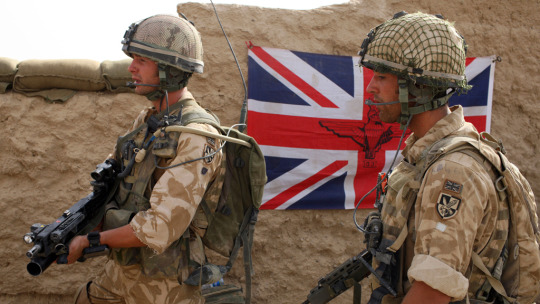
Almost two decades of conflict in Afghanistan has cost British taxpayers £22.2billion, or $31.3 billion according to UK government figures. As British troops prepare to leave Afghanistan, the 20-year deployment bill could be even higher. As of May 2021, the total cost of Operation Herrick (codename for the deployment of British soldiers to Helmand province) is £22.2billion. There were 457 fatalities on, or subsequently due to, Op Herrick. Of which 403 were due to hostile action. During the operation between January 1, 2006 and November 30, 2014, there were 10,382 British service personnel casualties. Of these 5,705 were injuries and the remainder being illness or disease. The UK’s remaining 750 troops in Afghanistan, involved in training local forces, started exiting the war-devastated country in May. Most of them will return home by the end of July.
They, like every one of us who went to fight in Afghanistan, will ask the same questions, ‘Why did we go there?’ ‘What was the real purpose of the mission?’ ‘Was it worth it?’
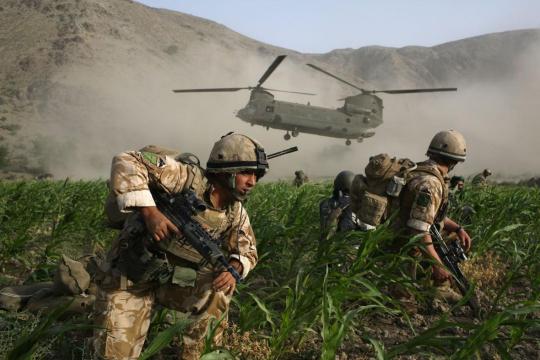
Both my older brothers fought there with special distinction and I later fought there too. I have very mixed emotions when I think about my time in Afghanistan. For all its faults and tortured history, I love that country and love its many ethnic people. I even started to learn Pashtu as I already had a spoken command of Urdu because I had been raised partly in both Pakistan and India and it’s where many Afghan refugees living in the UN camps for over a generation had learned Urdu too.
It’s not just that my family has history in Afghanistan going back to the days of the East India Company but I had a sincere respect for its culture and history as one of the central hot spots for great civilisational achievements, but also as a stubborn and unruly country who proudly defied the Great Powers to bend the knee and turned it into a ‘graveyard of empires’. Most of all I think of the friendships I made there and how my perspective on life changed as a consequence of knowing such resilience and fortitude in the face of catastrophe and death.
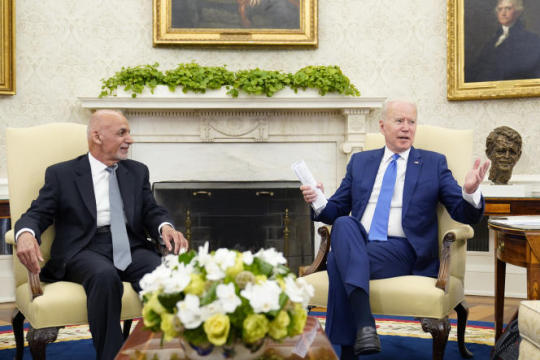
I’m sure like everyone else I wasn’t too surprised by President Biden’s announcement that he was announcing the imminent withdrawal of all American troops in Afghanistan. He wanted to pivot to something else when asked about it. “I want to talk about happy things, man!” He said. Who could begrudge him given that America has been at war in Afghanistan for a better part of 20 years and has nothing to really show for it. Except of course the loss of its brave service men and women as well as the death of thousands of Afghan civilians. It spent more than $2 trillion to kill Osama bin Laden, the architect behind 9/11 attacks and failed to convincingly snuff out both murderous terror groups, Al Qaeda and ISIS.
When the Secretary General of Nato announced back in April 2021 all alliance troops were to be withdrawn from Afghanistan, it was made to look like a nice, clean, enunciation of a joint decision. The end date was set for 11 September, 2021 - 20 years after the terrorist attacks on New York and Washington - and it was in line with the oft-repeated alliance maxim: we went in together; we will come out together. Except that, on closer examination, it was all rather messier.
This was partly because the withdrawal from Afghanistan had actually been Trump’s policy, so here was Joe Biden, the anti-Trump, co-opting a policy from his predecessor (a policy Trump had been so keen on that he tried to accelerate the withdrawal after he lost the election). Biden then tried to detach it from Trump by slowing down the withdrawal date a little and expressing it in terms more comprehensible to the Washington establishment and to US allies.
Where Trump had essentially done a deal with the Taliban and set a withdrawal date of 1 May, Biden left the Taliban out of it and invoked the totemic date of 9/11. This does not mean, of course, that the withdrawal will not be completed a good deal sooner - once you announce a withdrawal, you might as well get on with it.
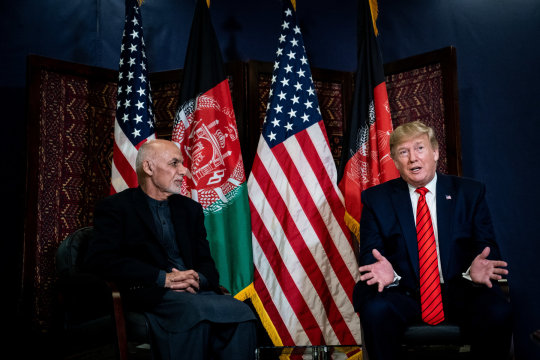
In fact, Biden had to make a decision one way or another, given the rapid approach of Trump’s 1 May withdrawal date. And, whether it came from Washington or Nato, it was pretty low key for an announcement that a 20-year military involvement that had cost 4,000 allied lives was ending. Indeed, many people beyond Washington and Afghanistan might not quite have registered the news, given the considerable noises from Nato’s simultaneous dire warnings about Russia massing troops on the Ukrainian border, the death of the Duke of Edinburgh in the UK, and the Covid pandemic everywhere.
And distractions were needed not just because Biden was implementing a Trump policy. It was also because he was ordering an unconditional withdrawal – which he justified, correctly, by saying that setting preconditions would mean that the troops could be there forever. It was a risk Biden knew all too well, given that Barack Obama had been persuaded by General David Petraeus – against his election pledges and his better judgement – that what Obama really wanted was not a withdrawal, but a ‘surge’ with conditions attached before a withdrawal could take place.
Distractions were also useful for London, where the timing was hardly ideal. Imagine you were in government in London, you had watched the dismal failure of the UK’s Herrick operations in Helmand Province between 2006 and 2014, you knew that your armed forces had suffered 456 deaths in 20 years, with many more severely injured, but you had hung on in there.
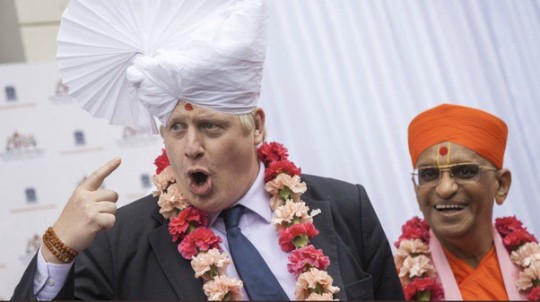
Your government had also just released a blueprint for foreign and security policy, setting future priorities even further from home, in the Indo-Pacific, and your Prime Minister was about to make a high-profile visit to India as part of his post-Brexit ‘Global Britain’ branding . In those circumstances, an announcement that the US had decided to leave Afghanistan, giving you no choice but to follow, was almost exactly what you did not need. Rather than showing the UK as a powerful, autonomous military actor and a valued ally, it showed the exact opposite.
It also reminded an unhappy British public about a costly conflict it had rather forgotten. And those who did more than bother to remember - like the families who lost loved ones on the battlefield - and who over the years have blamed successive governments for moving the goalposts and lacking an exit strategy (all true too).
All of which might explain why the UK’s Foreign and Defence Secretaries followed the US example by changing the subject to the iniquities of Russia and China, rather than issuing a joyous pronouncement to the effect of: hooray and thank goodness, our boys and girls are coming home.
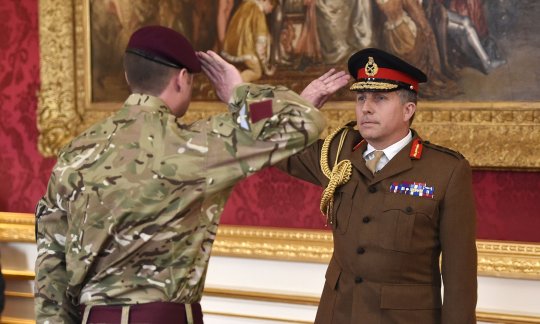
The UK’s Chief of Defence Staff, General Sir Nick Carter gave a subdued, unenthusiastic response to Biden’s announcement. I cannot remember such open acknowledgement of UK-US military policy friction in recent decades - or such an abject admission by the UK of its defence dependence on the US. What Carter said was that the unconditional withdrawal was ‘not a decision we had hoped for, but we obviously respect it and it is clearly an acknowledgement of an evolving US strategic posture’. In other words, the UK had opposed Biden’s decision – or would have done, if asked (which is not clear). Also, that it was Washington’s ‘strategic posture’ that had ‘evolved’, not the UK’s. He suggested there was a real danger that progress made could be lost and that there could be a return to civil war, with the Taliban maybe returning to power - again, all true.
Given that the UK officially has only 750 troops in Afghanistan at present, and most of them are there in a training capacity, to dissent from the US position so openly would be considered decidedly rude in the Ministry of Defence. Perhaps to that end, General Carter played the dutiful soldier and had to - through gritted teeth - put a positive gloss on Afghanistan’s future, insisting that the objective in going into Afghanistan, ‘to prevent international terrorism emerging from the country’, had been achieved which was ‘great tribute to the work of British forces and their allies’.
He also said that Afghan forces were ‘much better trained than one might imagine’ and that the Taliban ‘is not the organisation it once was’, so that ‘a scenario could play out that is actually not quite as bad as perhaps some of the naysayers are predicting.’ Blah blah blah. He’s wrong, and I think he knows it but only in the sanctity of his gentlemen’s club might he truly admit it.
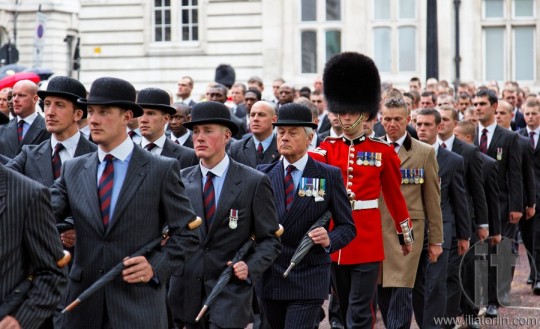
I know he’s wrong because the chatter amongst ex-veterans I know is that we’ve made a balls up of Afghanistan yet again - by ‘again’ I mean from the past 200 years of us Brits trying to bring order to chaos in Afghanistan and getting burned for our troubles.
Both my father and my older siblings tell me what their friends and ex-service peers (some very senior indeed) have been nattering over a drink at their gentlemen clubs where ex-veterans haunt the club bar. Many just shake their heads in sighed resignation before burying themselves in the Times crossword or drowning their sorrows with a beer or two at how lock in step we’ve become to the Americans at a time when the British army is re-branding itself as a more independent nimble hi-tech impact army (the creation of a new ranger regiment being but one example).
Still if President Biden wanted to tie a neat bow on U.S. involvement in Afghanistan - saying, as he had, that the logic for the war ended once al-Qaida was gutted and Osama bin Laden killed - then it reveals a stunning lack of introspection about the United States’ role in the conflict that will continue in Afghanistan long after the last American and British troops leave.
Less than three months after President Joe Biden declared that the last American troops would be out of Afghanistan by September 11th, the withdrawal is nearly complete. The departure from Bagram air base, an hour’s drive north of the capital, Kabul, in effect marked the end of America’s 20-year war. But that does not mean the end of the war in Afghanistan. If anything, it is only going to get worse.
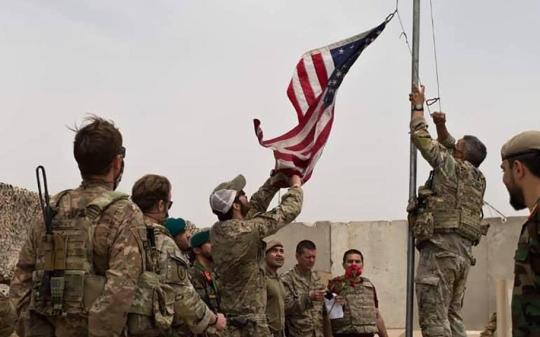
It is true that the president had no good choice on Afghanistan, and that he inherited a bad deal from his predecessor. There are never good choices when it comes to Afghanistan: only bloody trade offs.
But in announcing an unconditional withdrawal, he made the situation worse by throwing out the minimal conditions U.S. Special Envoy Zalmay Khalilzad had negotiated under the Trump administration. U.S. envoy Zalmay Khalilzad has delivered to the Afghan government and Taliban a draft Afghanistan Peace Agreement - the central idea of which is replacing the elected Afghan government with a so-called transitional one that would include the Taliban and then negotiate among its members the future permanent system of government. Crucial blank spaces in the draft include the exact share of power for each of the warring sides and which side would control security institutions.
The refrain now from the Biden administration is that the United States is not abandoning Afghanistan, that it will aim to do right by Afghan women and girls, and that it will try to nudge the Taliban and Kabul toward a peace deal using a diplomatic tool kit.
But the narrative ignores much of the reality on the ground. It also ignores history.
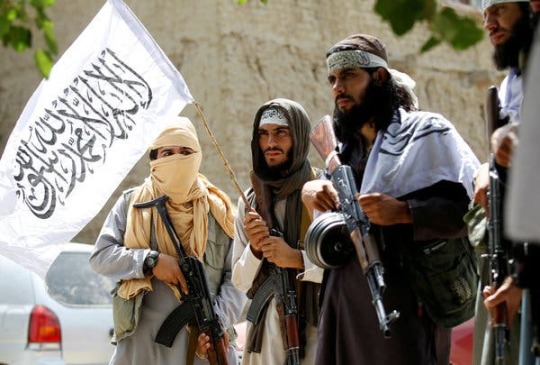
In theory, the Taliban and the American-backed government had been negotiating a peace accord, whereby the insurgents lay down their arms and participate instead in a redesigned political system. In the best-case scenario, strong American support for the government, both financial and military (in the form of continuing air strikes on the Taliban), coupled with immense pressure on the insurgents’ friends, such as Pakistan, might succeed in producing some form of power-sharing agreement.
But even if that were to happen - and the chances are low - it would be a depressing spectacle. The Taliban would insist on moving backwards in the direction of the brutal theocracy they imposed during their previous stint in power, when they confined women to their homes, stopped girls from going to school and meted out harsh punishments for sins such as wearing the wrong clothes or listening to the wrong music.
More likely than any deal, however, is that the Taliban try to use their victories on the battlefield to topple the government by force. They have already overrun much of the countryside, with government units mostly restricted to cities and towns. Demoralised government troops are abandoning their posts. In the first week of July 2021, over 1,000 of them fled from the north-eastern province of Badakhshan to neighbouring Tajikistan. The Taliban have not yet managed to capture and hold any cities, and may lack the manpower to do so in lots of places at once. They may prefer to throttle the government slowly rather than attack it head on. But the momentum is clearly on their side.
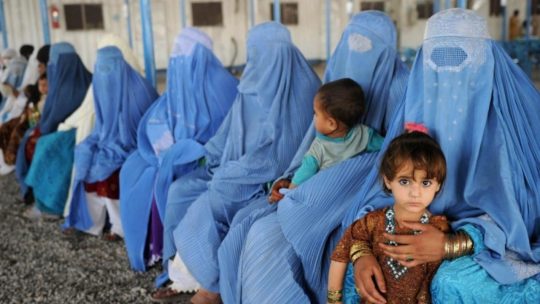
America and its NATO allies have spent billions of dollars training and equipping Afghan security forces in the hope that they would one day be able to stand alone. Instead, they started buckling even before America left. Many districts are being taken not by force, but are simply handed over. Soldiers and policemen have surrendered in droves, leaving piles of American-purchased arms and ammunition and fleets of vehicles. Even as the last American troops were leaving Bagram over the weekend of July 3rd, more than 1,000 Afghan soldiers were busy fleeing across the border into neighbouring Tajikistan as they sought to escape a Taliban assault.
As the outlook for the army and for civilians looks increasingly desperate, so do the measures proposed by the government. Ashraf Ghani, the president, is trying to mobilise militias to shore up the flimsy army. He has turned for help to figures such as Atta Mohammad Noor, who rose to power as an anti-Soviet and anti-Taliban commander and is now a potentate and businessman in Balkh province. “No matter what, we will defend our cities and the dignity of our people,” said Mr Noor in his gilded reception hall in Mazar-i-Sharif, the key to holding the north (sounds like Game of Thrones). The thinking is that such a mobilisation would be a temporary measure to give the army breathing space and allow it to regroup and the new forces would co-ordinate with government troops to push back hard on the Taliban.
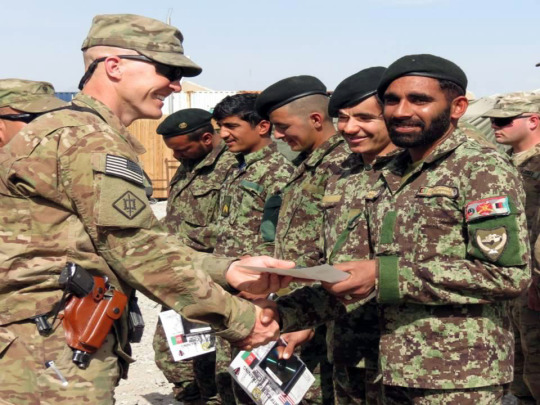
However this is Afghanistan. The prospect of unleashing warlords’ private armies fills many Afghans with dread, reminding them of the anarchy of the 1990s. Such militias, raised along ethnic lines, tended to turn on each other and the general population.
With America gone and Afghan forces melting away, the Taliban fancy their prospects. They show little sign of engaging in serious negotiations with Mr Ghani’s administration. Yet they control no major towns or cities. Sewing up the countryside puts pressure on the urban centres, but the Taliban may be in no hurry to force the issue. They generally lack heavy weapons. They may also lack the numbers to take a city against sustained resistance. On July 7th they failed to capture Qala-e-Naw, a small town. Besides, controlling a city would bring fresh headaches. They are not good at providing government services.
Perhaps the Taliban have learned their history lesson and might refrain from attacking Kabul this time around. Their best course may be to tighten the screws and wait for the government to buckle. American predictions of its fate are getting gloomier. Intelligence agencies think Mr Ghani’s government could collapse within six months, according to the Wall Street Journal. So clearly the momentum is on the side of the Taliban and they just need to chip away at Ghani’s forces one district after another until the inevitable and hateful surrender of the central Afghan government to their demands.
At the very least, the civil war is likely to intensify, as the Taliban press their advantage and the government fights for its life. Other countries - China, India, Iran, Russia and Pakistan - will seek to fill the vacuum left by America. Some will funnel money and weapons to friendly warlords. The result will be yet more bloodshed and destruction, in a country that has suffered constant warfare for more than 40 years. Those who worry about possible reprisals against the locals who worked as translators for the Americans are missing the big picture: America, Britain and other allies are abandoning an entire country of almost 40m people to a grisly fate.

Nothing exemplifies - at least in Afghan eyes - of all that has gone wrong with American involvement in Afghanistan than in the manner of their leaving.
The U.S. left Afghanistan's Bagram Airfield after nearly 20 years by shutting off the electricity and slipping away in the night without notifying the base's new Afghan commander, who discovered the Americans' departure more than two hours after they left in the middle of the night without raising any alarms.
They left behind 3.5 million items, including tens of thousands of bottles of water, energy drinks and military MRE's (Meals Ready to Eat ration packs to the uninitiated). Thousands of civilian vehicles were left, many without keys to start them, and hundreds of armoured vehicles. The Americans also left small weapons and ammunition, but the departing US troops took heavy weapons with them. Ammunition for weapons not left for the Afghan military was blown up.
Now that is some feat considering the logistics of this mass exodus without drawing any attention. You have obviously been to Bagram and so you will know just how big and sprawling it is. Bagram Airfield is the size of a small city, roadways weaving through barracks and past hangar-like buildings. There are two runways and more than 100 parking spots for fighter jets known as revetments. One of the two runways is 12,000 feet long and was built in 2006. There's a passenger lounge, a 50-bed hospital and giant hangar-size tents filled with furniture. And all those shops to remind Americans of home from familiar fast food restaurants and hairdressers and massage parlours to buying clothing and jewellery and buying a Harley Davidson motorbike (or so I’ve been told).
I’m guessing that the Afghans were certainly outside of the wire and probably had not been inside Bagram Airfield for months. So from the outset they would not have had any reason to think anything was going on until the generators probably ran out of fuel and it started to go a little too quiet. The inner gate was probably discretely left unlocked and when the US stopped answering the radio/phone and then they probably investigated.
Before the Afghan army could take control of the airfield about an hour's drive from the Afghan capital, Kabul, it was invaded by a small army of looters, who ransacked barrack after barrack and rummaged through giant storage tents before being evicted, according to Afghan troops. Afghan military leaders insist the Afghan National Security and Defense Force could hold on to the heavily fortified base despite a string of Taliban wins on the battlefield. The airfield includes a prison with about 5,000 prisoners, many of them allegedly Taliban members.
I’m pretty sure some bright spark in the US Pentagon public affairs dept convinced his military superiors that it was important to avoid the optics of Americans leaving in the same way they did in Vietnam in case it depresses the American public and the US military. Instead it demoralised its allies, the Afghan national army who are now the only line of defence against the Taliban. In one night, they lost all the goodwill of 20 years by leaving the way they did, in the night, without telling the Afghan soldiers who were outside patrolling the area. The manner in which the Americans left Bagram air base amounts to a resounding vote of no confidence in Afghanistan’s future. It just looks bad.
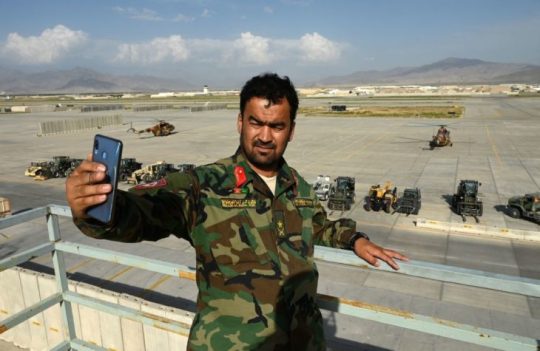
The U.S. choice came with costs attached to each decision. With staying, the cost was potential U.S. troop casualties and a fear that things would not change on the ground. With leaving comes the cost of a deeper conflict in Afghanistan and a backsliding of progress made there over the past two decades. In many ways, the costs of staying seem shorter-term and borne by the United States, while the costs of leaving will be predominantly borne by Afghans over a longer time horizon. Yet, even if those costs seem remote now, history tells us that they will be blamed on the United States.
Biden perhaps reflective of history of Americans getting into quagmires abroad didn’t want to be seen exerting time and energy for a losing cause. His decision also reflects his administration’s foreign policy for the American middle-class paradigm, which focuses on domestic considerations over international ones (and is this so different from Trump’s “America First”? No, it is not). The irony, though, is that the American middle class largely doesn’t care about Afghanistan - their ambivalence gave way to support for this decision once it was announced, but it wouldn’t be hard to visualise the public approving of a scenario that kept a couple thousand troops there for a while longer.
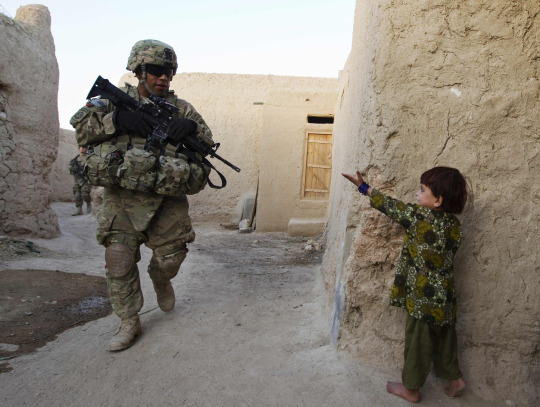
What’s perhaps most disturbing is the narrative the president has presented along with the rationale for withdrawal: that America went to Afghanistan to defeat al-Qaida after 9/11, that mission creep led America to stay on too long and, therefore, it is time to get out. This takes an incomplete view of U.S. agency in the war in Afghanistan. The narrative implies that the civil conflict in Afghanistan today did not originate with America - that this more than 40-year war began with the Soviet invasion of Afghanistan in 1979, preceded America’s interference in Afghanistan, and will follow our departure.
The fact of the matter is that, by beginning the campaign in Afghanistan in 2001 and overthrowing the Taliban, who were then engaged in their draconian rule, and installing a new government, we western allies began a new phase of the Afghan conflict — one that pitted the Kabul government and the United States/Britain/NATO against the Taliban insurgency. The Afghan people did not have a say in the matter. That we allied powers are leaving Afghan women, children, and youth better off in many ways after 20 years is due to us, and we should be proud of that. But that we are leaving them mired in a bloody conflict is also due to us, because we could not hold off the Taliban insurgency, and we must all reckon publicly with that.
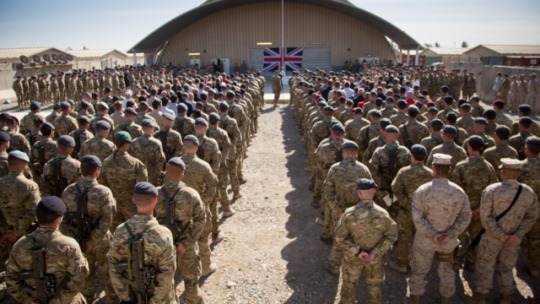
I have to ask myself why did we fail?
I’m only speaking about us Brits now as I’m sure you have your own thoughts as an ex-Marine officer of what you thought of the American military effort. Yes, I’m copping out of really bashing the yanks because first, I have too much respect for those fantastic American service men and women I did have the privilege to fight alongside with; and second, we Brits have nothing to crow about as we fucked up in lots of ways too, and to make things worse, we should have known better given our imperial history with Afghanistan.
The seeds of our failure in Afghanistan lies in not learning from history. We didn’t have a mission that was properly defined nor did we have a strategy that was clear, coherent, and easily communicated to both its fighting men and women as well as to the British public.
Were we there to get our hands bloody and to root out and destroy extreme Islamist terrorists or were we there to indulge in state building out of some idealistic notions of liberal humanitarianism? This question was at heart of our failure within our government and also within the British army as well as our relations with America and our NATO allies and finally the Afghans themselves.
Although never colonised in the same manner as other central and south Asian countries, the modern Afghan state is very much a creation borne out of great power rivalry. A land occupied by a number of different ethnic, linguistic and religious groups, it is a country whose borders were defined by, and whose sense of national identity was forged in response to western great power competition. Its geopolitical position - landlocked, mountainous, and surrounded by past great powers and present regional rivals - lends Afghanistan a dual role of geographic obscurity and great strategic significance, and has as such frequently been treated as little more than a buffer state between empires and a proxy of local powers. Its shared historical border with Russia and British India made it an object of imperial intrigue and, by consequence, has been subject to five European military interventions in the last 175 years.
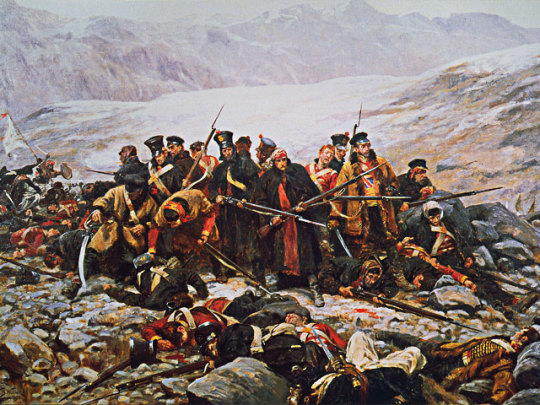
The first three interventions of these occurred during the era of ‘the Great Game’ in the nineteenth and early twentieth centuries, in which Britain and Russia (latterly the Soviet Union) competed for influence and control over Afghan politics in order to protect their respective imperial holdings in India and central Asia.
The fourth and fifth interventions, ranging from the late 1970s to the present day, similarly involved attempts by Soviets and then by an American-led international coalition to remove political leaders acting against their interests and to protect their favoured candidates.
The unifying feature of all these conflicts was the idea of Afghanistan as the site of potential threats to the interests and security of more powerful states.
Britain’s legacy in Afghanistan in particular set the tone for the country’s historical pattern of conflict and political contestation, fuelling both the intermittent emergence of Afghan national consciousness and a fractious political lineage that saw thirteen amirs in just eighty years. Interventions by the Empire during the Great Game set the conditions for the assassination of ostensibly national leaders by their compatriots (Shah Shuja Durrani in the First war) or their exile by the British (Shere Ali Khan and Ayub Khan in the Second).
Despite the British achieving their aim of protecting India in the second and third conflicts by maintaining Afghanistan as either a pro-British buffer state or as a neutral party, the Afghan narrative tends to emphasise successes such as the massacre of British forces retreating from Kabul to Jalalabad in 1842, the defeat of British and Indian forces at Maiwand in 1880, and the gaining of sovereignty in foreign affairs in 1919.
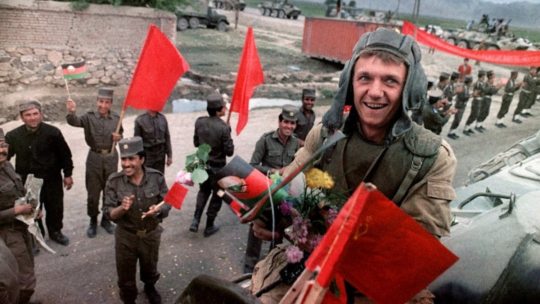
Soviet intervention in the late 1970s and 1980s further buttressed this identity of resistance, and the failure and ultimate overthrow of the Communist-backed Najibullah government, as well as the collapse of the Soviet Union shortly after their drawdown from Afghanistan, led to a sense amongst the victorious mujahidin of the country as the ‘graveyard of empires’.
Afghanistan’s modern history should thus be seen as inextricably linked to the ebbs and flows of great power politics. Each intervention exacerbated extant internal power struggles between rival elite individuals and groups vying for nominal control over the country. Foreign intervention in Afghanistan was met on each occasion with fierce resistance from tribal militias coalesced around religion; as has been remarked upon by one historian of the country, the threat of external domination has been one of the few means of uniting its disparate population around the concept of an Afghan ‘nation’, and in most cases this shared sense of identity cohered around religion, not nationalism.
Indeed, the presence of intervening powers and the development of the Afghan state may be seen as mutually supporting: whilst most Afghan leaders throughout the last two centuries have asserted their sovereignty over the country, the reality has in most circumstances been one of competing tribal chiefs and/or ‘warlords’ rather than a single dominant leader.
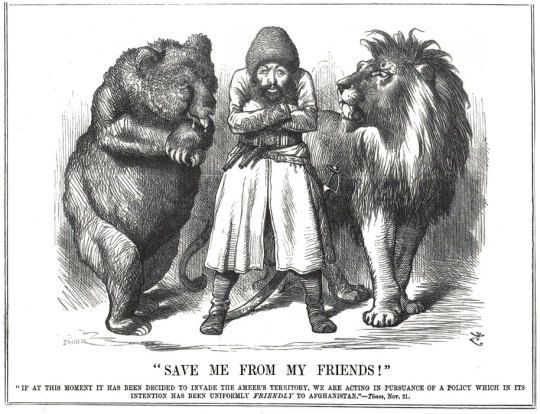
Where leaders have managed to cohere the disparate tribal and ethnic groupings of the country under one banner - most notably under the regime of Dost Mohamed Khan (1826-1839, 1845-1863) – this was due in large part to their diplomatic abilities of compromise and co-optation with Afghanistan’s regional power- brokers. In other cases, such as that of the reign of Abdurrahman (1880- 1901), power was maintained by an unflinching ‘internal imperialism’ and the use of punitive force against rebellious factions.
The challenges of maintaining and projecting centralised power in Afghanistan allow us to see the relationship of its leaders with world or regional powers in the last two centuries as one of mutual exploitation. Throughout the Great Game and the Cold War, whilst the British/Americans and Russians/Soviets would use threats and bribes (and occasionally force) to compel Afghan rulers to comply with their geopolitical needs, Afghan rulers themselves often deftly manipulated those powers to maintain and extend their own power.
The pattern followed by Afghan leaders from the nineteenth century to the present day is remarkably similar in the respect that most have relied upon a rentierist economic model, seeking external aid in order to sustain the cost of security and administration. The plan of modern rulers was to warm Afghanistan with the heat generated by the great power conflicts without getting drawn into them directly. Abdurrahman, for example, used British subsidies to fund his military campaigns against rebellious factions; the Musahiban rulers of the mid-twentieth century used American capital to develop its nascent economic infrastructure and Soviet finance to bolster its armed forces; and, following the overthrow of the last royal leader of Afghanistan, Mohamed Daoud, in 1978, the quasi-communist leadership of Babrak Karmal, Hafizullah Amin, Nur Muhammad Taraki, and Mohammad Najibullah during the late 1970s and 1980s relied in the main on Soviet money and military assistance in its ultimately failed attempt to implement socialist policies and put down the American, Saudi and Pakistani-backed mujahidin.
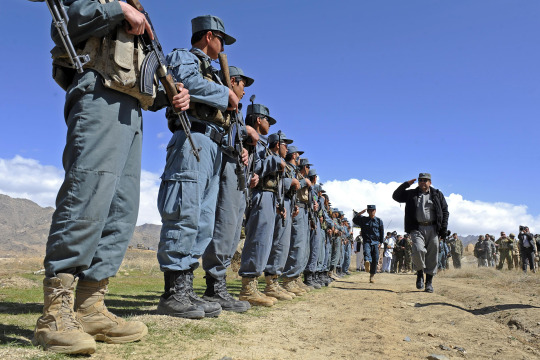
These trends continued into the post-Cold War period in respect to both the Taliban movement (essentially directed and funded by Pakistan), the Northern Alliance (funded largely by former Soviet central Asian states) and the regime of Hamid Karzai (maintained in economic and military terms by the American-led, NATO-operated International Security Assistance Force and the wider international community). In the former cases, occurring in the main in the period of civil war between 1992 and 2001, rentierism was limited to the maintenance of proxy parties and the continuation of conflict.
By contrast, the ISAF mission bore similarities with the Soviet-backed socialist regimes of the 1980s, insofar as it focused huge amounts of capital and military resources on stabilisation and state-building efforts. Both intervening parties made the error of ignoring Afghanistan’s political history and focused their efforts on bolstering the authority of a centralised state, both promoted policies that were deemed ‘universal’ in their application and were, unsurprisingly given such hubris, vulnerable to accusations by Afghan opposition to being alien and imperialistic ideologies, and both expended enormous amounts of blood and treasure in order to sustain the regimes they supported.
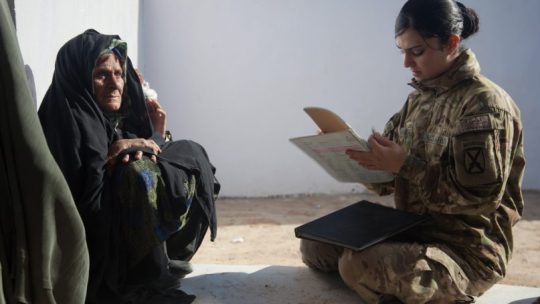
The UK’s struggle to locate a coherent strategy for Afghanistan should, therefore, be seen firstly in the light of the historical problematic of Afghan state-building. This is important in narrative terms because difficulties of defining strategy imply similar challenges in explaining strategy. As with its efforts to ‘think’ strategically, Britain’s ability to explain the strategy(ies) for the war in Afghanistan have been frequently criticised by various commentators. The most strategically debilitating aspect of the Afghan campaign has always been the incoherence of the mission’s purpose; indeed the question ‘‘why are we in Afghanistan?’’ has never really been settled in public consciousness.
The international community massively underestimated the difficulties of state-building and greatly overstretched themselves in the commitments made to Afghanistan, and that they did so because ‘strategies’ for Afghanistan rested on assumptions of the universal applicability of liberal state-building.
The international community from the start (meaning from the Bonn Conference of late 2001) fundamentally misunderstood the nature of an Afghan society deeply ravaged by decades of conflict, and failed to foresee the malign effects state-building ventures would have on the country. Specifically, the Bonn Conference, which set out the parameters of the post-invasion Afghan state, implemented a centralised state system onto a state whose experience of such was limited, and where the success of such a system in extending its authority beyond the major cities was predicated on coercion and the use of force.
Historically this has rarely been a credible option for Afghan rulers or their international backers, and was even less so under the self-imposed restrictions of liberal war-fighting and state-building. Rather, re-creating a centralised state required Afghan and international actors to enter into the same methods of co-optation and compromise as those of the past; in necessitating these kind of measures – as opposed to implementing a looser, federal system of governance – the centralisation of the Afghan state paved the way for a reconstitution of a ruling order based on tribal elements and ‘strongmen’. This produced something of a paradox for state-builders, as the creation of a strong, central state capable of implementing liberal policies across Afghanistan came at the cost of entering into alliances with ‘warlords’ known for their illiberal and coercive political approaches and illicit economic activities.

Another unintended but unavoidable consequence of centralised state-building identified by scholars is the re-constitution of the rentier state in Afghanistan. Post-Bonn, Afghanistan returned to its historical norm of maintaining the state via the extraction of external security and development rents, without which it would almost certainly implode due to the ruinous state of its economy and taxation system. Studies have shown that his new rentierism differed from previous patronage systems at the state level insofar as it was fuelled by an unprecedented influx of capital and resources into the country. This had the effect of introducing regulated systems of ‘neo-patrimonalism’, where departments were to be distributed as rewards to the various factions that took part in the Bonn conference, and there had to be enough rewards to go around.
In other words, the structure of the post-invasion Afghan state was, to a great extent, defined not by the demands of good governance, the needs of the country or the demands of post-conflict stabilisation and reconstruction – the purposes for which the centralised model was chosen to promote – but rather by the first-order need to avoid the derailment of the centralised state by co-opting regional power brokers.
Because of the imperative of shoring up a nascent state by securing support from potential competitors, the gulf between the ends of liberal state-building and the illiberal means required to facilitate its functioning can therefore be seen to a certain extent as inevitable.
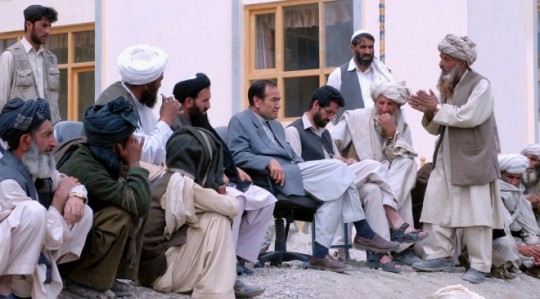
A major issue, however, was that the patrimonial linkages created by the state for its regional proxies was not comprehensive, as it did not extend to the Taliban’s Pashtun heartland and, as such, fuelled resentment and alienation as much as they placated and co- opted extra-state power brokers. Key players in the Northern Alliance - the primarily Tajik opposition to the Taliban - received prestigious posts within the state, whilst the predominantly Pashtun Taliban were themselves excluded from such arrangements. Because those rewarded by the state tended to be given ministerial or governorial roles in cities, the conflict dynamic tended to reflect an urban – rural divide similar to that of the Soviet occupation. Along this reading, the neo-Taliban insurgency was in many ways a product of the political miscalculations and deficiencies of post-invasion state- building activities.
Given this starting point, such a view concludes that the strategic problems encountered by the international community in Afghanistan were, to a large degree, problems created by (or at the very least exacerbated by) the state-builders themselves. They misread Afghan politics in a way that reflected their own philosophical assumptions about the state and society.
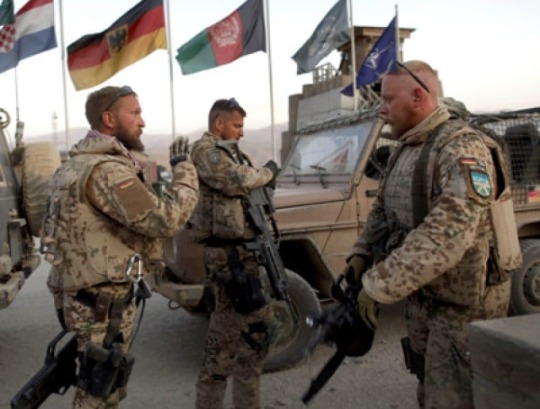
Strategy in Afghanistan suffered because the coalition effort, comprised of multiple national actors and the United Nations, rarely took on the form of a unified effort. Part of the reason for this was a divergence of opinion between actors as to the ultimate purpose – counter-terrorism or state-building – of the intervention.
In the first years of the Afghan campaign, the United States’ Bush Administration remained staunchly opposed to what it called ‘nation building’ and opted instead to pursue a policy of capture- or-kill missions against suspected terrorists. For the United Nations and most of the United States’ European NATO allies, however, state-building was considered a necessary element of any counter-terrorist strategy. This difference of opinion was manifest from the start by the creation of two parallel missions – the US-led, counter-terrorism-focused Operation Enduring Freedom (OEF) and the stabilisation missions of the European Union, United Nations (United Nations Assistance Mission in Afghanistan (UNAMA)) and NATO (International Security Assistance Force (ISAF)) – engaged in seemingly incompatible aims of military prosecution and peace building.
Opinion on the impact of this dual approach varies. Some scholars have noted, along lines similar to those critiquing the state-building efforts of the international community that the approach taken by the UN, EU and ISAF was too ambitious, naïve and unrealistic, and therefore bound to fall short of their liberal political and economic goals. Both Europe and these international agencies ignored the necessity of paring down the international community’s state-building efforts to core, security-centric capacity building within the Afghan National Security Forces. But of course one can make the counter argument, as many have of course, that on the contrary it was the insufficiencies of state-building approaches vis-à-vis OEF’s counter-terrorist approach that led to subsequent failures in UN and ISAF efforts; specifically, that a disproportionate focus on counter-terrorism missions meant that opportunities of peace- building were irreparably compromised.
Within NATO there was a division not just of opinions but also one of mission relating to different political perspectives about the purpose of the Afghan mission and its ultimate referent object – whether it was primarily about the interests of the coalition member states or concerned in the main with Afghanistan itself – and, from that, the methods to be employed in pursuit of one or another objective. This was not merely a debate bounded by strategic necessity, however; rather, such debates stemmed as much from institutional disagreements over who would or could do what in Afghanistan, which in turn arose from the differences in political constitutions and cultural attitudes towards counterinsurgency and counter- terrorism.
These ‘national caveats’ or ‘red cards’ of participation created significant problems for NATO in Afghanistan, both political, in terms of the relations between states and the abiding sense amongst some that others were ‘free-riding’ on the collective security system and, and strategic and operational, in the sense that command-and-control capabilities and cohesion between forces were limited by the engagement restrictions placed on certain armed forces. Indeed, the disproportionate burden placed on combat-oriented states like the United States, the United Kingdom, and several new member states in Eastern Europe led to political statements denouncing Europe’s perceived transgressors of collective security participation; former US Defence Secretary Robert Gates argued, for example, that NATO had effectively become a ‘two-tier alliance’ ‘between members who specialise in ‘soft’ humanitarian, development, peacekeeping and talking tasks and those conducting the ‘hard’ combat missions - between those willing and able to pay the price and bear the burdens of alliance commitments, and those who enjoy the benefits of NATO membership... but don’t want to share the risks and the costs’.
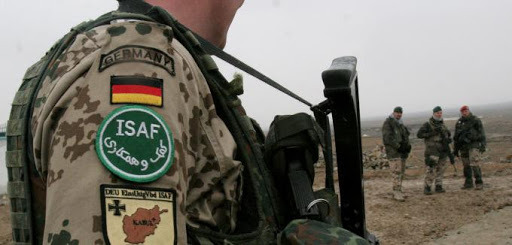
A lack of strategic unity was the natural consequence of a structural compromise that produced two distinct strategic authorities that were, in many ways, competing with one another. Along similar lines to the political arrangements between the Afghan state and its regional proxies, the NATO alliance structure can be seen (and evidently is seen by officials such as Gates) as patrimonial: states participated on the basis of fulfilling their own interests and along operational lines that were complementary to those interests, for the purposes of securing an alliance structure that accommodated all participants ahead of the imperative of creating a coherent strategy for stabilising Afghanistan. As with the neo-patrimonialism of the Karzai regime NATO’s efforts would be dictated by the limitations imposed upon it by circumstance.
Thus, in the cases of Afghanistan’s and the international community’s internal political dynamics, strategy was confined by the structure of the Afghan state and society, the structure of the international community and NATO, and the interplay between those structures. The implication here is that the agency required for the possibility of a workable strategy may have been illusory from the start.
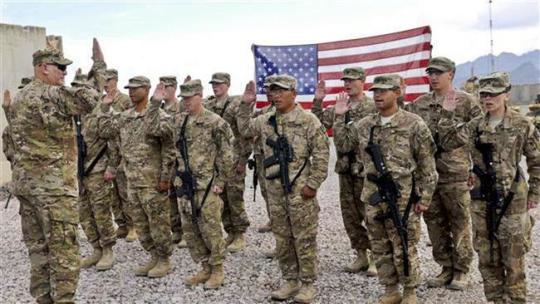
Leaving Afghanistan was never going to be pretty, but the latest turn is uglier than expected.
No one quite expected the speed of collapse within the Afghan National Army to hold of attacks of the Taliban. I don’t think it’s do with the lack of training or their professional skills is lacking (though there may be some truth in it). A big driver in the collapse is the money for wages, food and medical care for troops is syphoned to Dubai, so the Afghans who want to fight, and there are quite a few who hate the Taliban, get less replenishment than the 6th army in the last weeks of Stalingrad. They have arms, ammo and boots for this season only and that is it. Both money and morale are in short supply for these soldiers.
If I was a trained soldier in the Afghan National Army I would desert. I would say to them abandon the fixed defences these ‘ferenghis’ (foreigners) have gifted you and move to the hills and seek refuge with your tribal clan, who will be glad of the arms and experience you bring. Or get over the border if you are lucky to be in the North, if in the West you hire yourself to the Narcos in the badlands on the Iran border. Most other places it is either a last stand or defection, your Government and their relatives have already got their planes fuelled up in Kabul ready to move to their villa complexes in the UAE.
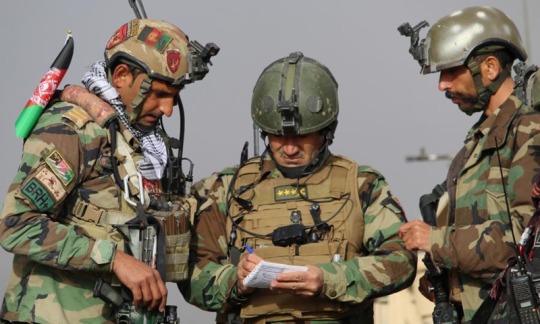
I’m being a trifle cynical but for good reason. Everyone who has been to Afghanistan sees the veil lifted on the corruption of aid and how the elites protect themselves ahead of defending the masses who bear the brunt of the bloodshed.
The corruption has been endemic from the get go, but the international community ignored it all for 'progress'. Any Afghan politico you hear on the media complaining about the West abandoning Afghanistan has at least $30 million parked in Dubai that should have gone to the soldiers, teachers, doctors, builders etc.
As spectacular as the collapse of the Afghan National Army has been it��s been even more scarier seeing how swift the Taliban has been in taking over vital provincial areas through propaganda, civilian intimidation, and rapid attacks. One by one, the Taliban has been taking over areas in a number of provinces in northern Afghanistan in recent weeks. The Taliban says it has taken control of 90 districts across the country since the middle of May. Some were seized without a single shot fired.
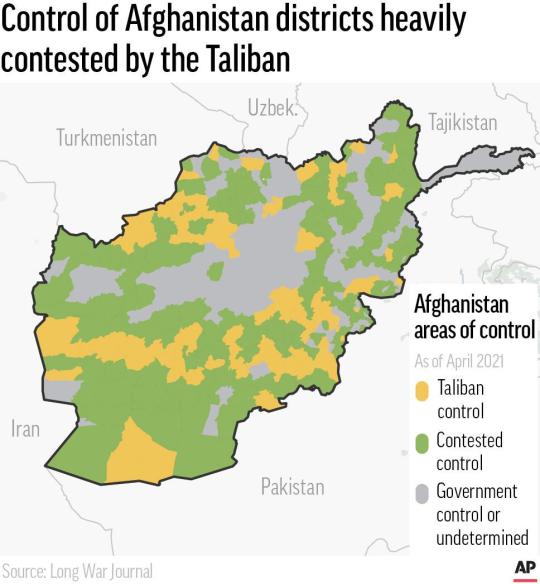
The UN's special envoy on Afghanistan, Deborah Lyon put the figure lower, at 50 out of the nation's 370 districts, but feared the worst was yet to come. Most districts that have been taken surround provincial capitals, suggesting that the Taliban are positioning themselves to try and take these capitals once all foreign forces are fully withdrawn. On a map, it's easy to see the point Lyon is making. A stark example is Mazar-i-Sharif, the biggest city in the north and a significant power centre in its own right. It was the rock upon which the Northern Alliance fought against the Taliban.
It is significant the Taliban are kicking off this offensive in the north, not their heartland in the south and east. The north was the toughest part of the country for them to crack last time. Their expectation is if they have victory there, success will flow much easier in their traditional homelands further south.
The strategy of taming the north extends to emasculating and profiting from trade routes to neighbours. On Monday night they captured the important border town of Shir Khan Bandar, Afghanistan's main crossing into Tajikistan. Earlier in the day, top Tajik government officials had met to discuss concerns about the growing instability next door. There is no indication that the Taliban intend to take their fight north of the border, but in the past Tajikistan has been a vital conduit for supplies flowing to the militants' northern enemies.
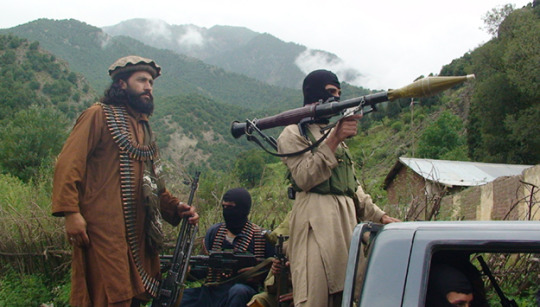
The last time the Taliban controlled the city was 20 years ago, when they left hundreds of captives in steel trucking containers to suffocate and die in the scorching desert heat. Now, the militants are back at the city gates once again, as part of a lightning offensive against Afghan government forces that has set alarm bells ringing from Kabul to Washington. So it should worry us all where will all this lead to.
America's drawdown seems to be the game changer. The Taliban have been beaten back several times in recent years, notably from Kunduz in 2015. The Taliban captured it briefly before US airstrikes were called in. Civilian casualties were high but the militants were driven out. The militant group has never been able to withstand the heavy US and NATO air assaults backing Afghan ground forces, but now the US and NATO are leaving, so is much of the threat of sophisticated and sustained air power. And the Taliban are well aware of this.
It seems to me behind the choice of withdrawal by the Biden government lies a bigger assumption that drives that choice. That is the Taliban militants' perceived desire for international recognition. This has been the mantra underpinning the American exit. The logic of the American argument has been simple: The Taliban wouldn't renege on their agreements with the US because they crave international acceptance. The events of this past week and more appear to blow a hole in that assumption.
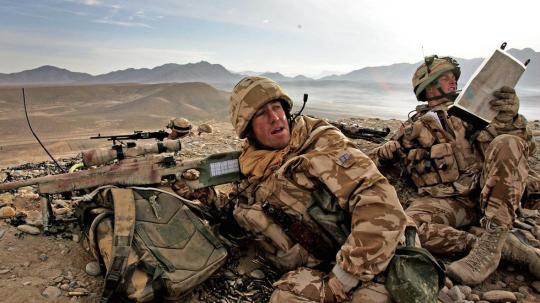
Another assumption that’s currently being blown out of the water is the US establishing some presence outside of Afghanistan so that if it needs to intervene again to combat terrorism or flush out militants then it can do so from the safety of a neighbouring country. But so far no country has come forward to reciprocate. And why would they? Like the Afghans, no one likes foreign troops with boots on the ground in their country. Only the central Asian republics and possibly Pakistan would come close to allowing that but there would be a political cost those governments would pay with their people. Moreover by welcoming the Americans in, they also allow the militants to target that country too.
Another assumption is the nature of the Taliban support and links to terrorist groups. The U.S. may not face any serious post-withdrawal Afghan support of extremist threats to the United States, even if the Taliban does take over. It is all too true that the Taliban continues to talk to the remnants of Al Qaeda, as do elements of the Pakistani military. It is unclear, however, that these remnants of Al Qaeda focus on attacks on the U.S., and the Taliban does seem to oppose ISIS. It is also unclear that the Taliban will host other extremist movements that focus on attacking the U.S. or states outside the region.
It is unclear that any key element of the Taliban has an interest in such attacks on the United States. Even Al Qaeda now focuses largely on objectives inside Islamic countries, and it is unclear that some other major extremist force will emerge in Afghanistan that do not focus on regional threats and on taking over vulnerable, largely Islamic states.
At the same time, one needs to be careful about the assumption that the U.S. can defeat any such threats by launching precision air and missile strikes against extremist targets. It is unclear that the forces in Afghanistan involved in any small covert attacks on the U.S. will be easy to target and cripple if they do emerge. The Taliban is unlikely to tolerate major training camps and facilities for extremist forces, and any such strikes will present major problems for the U.S. if the extremist threat consists of scattered small facilities and small expert cadres that shelter among the Afghan population.
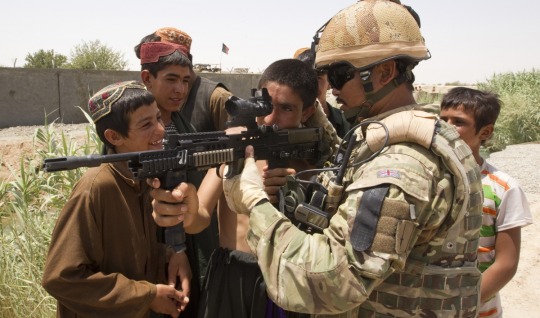
It is also far from clear that more intense U.S. air attacks on Taliban forces from outside Afghanistan will have any decisive effects. The loss of limited numbers of Taliban fighters as well as some key Taliban leaders and facilities will not offset the pace of their victories in the countryside or enable the central government to survive. A continuing U.S. ability to target and kill some key Taliban leaders and fighters also does not mean that the risk of such strikes will deter future Taliban willingness to let small, extremist strike groups conduct well-focused, well-planned strikes on U.S. or allied territory, especially if such groups in Afghanistan sponsor attacks on the U.S. or it strategic partner by strike units or cadres based in other countries.
At the same time, it does seem more likely that the Taliban, and/or any independent extremist groups, will focus largely on Iran, Pakistan, Russia, China, and the other “-Stans.”
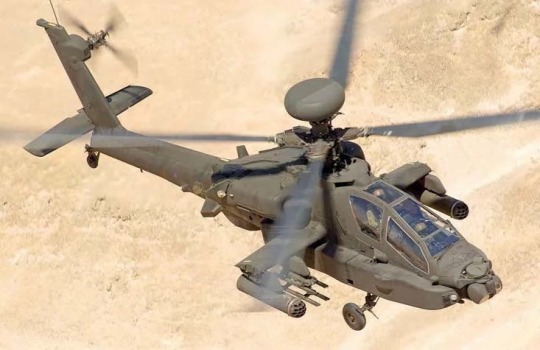
Going forward I think we need to re-evaluate many of our assumptions about the war in Afghanistan.
The objectives of the Authorised Use of Military Force approved by the US Congress in 2001 have long been accomplished. Once Osama bin Laden was killed in Operation Neptune Spear in 2011, the last element of the AUMF was met. The American and British mission in Afghanistan was complete. But America and Britain did not leave because we wanted to do a spot of state building to curb the spread of militant islamist terror. That was a mistake as it turned out.
Post-Neptune Spear, The American, the British, and their allies’ conventional mission should have been ended, adopting instead a laser focus on intelligence collection and offensive special operations to prevent al-Qaeda (or any terrorist organisation) from re-establishing safe havens and training areas.
What was needed for an acceptable ‘victory’ and a ‘saving face’ withdrawal was to embrace the use of Afghan Militia Forces the same way the Allies did for our initial entry way back in 2001.
In 2001, Western powers won the initial military engagement in 42 days using special operations forces with local and regional allies - we need to return to this format - and through a combination of special operations and specific information operations efforts, regaining the high ground and influence over ‘centres of gravity’. The issue is not the number of troops, but the mission of the forces there. Once the mission is defined, the number of forces needed would be clear.
It has never been about the number of troops - it’s been about the lack of an achievable mission assigned to our forces in Afghanistan.
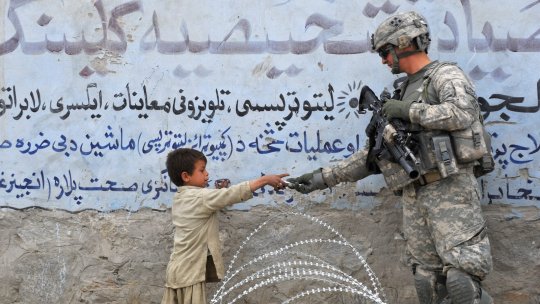
The US engaged in ‘nation-building’ for the wrong reasons - and has seen bad results. We installed Hamid Karzai, served as his praetorian guard to protect the new central government and abandon our AMF allies and attempted to build a large, bulky, expensive and ineffective Afghan National Army - a force that is now evaporating before our eyes. It was folly.
Americans will never make the Afghan people more like them - nor will they be able to instil what my American colleagues used to fondly refer to as ‘a Jeffersonian democracy’ in Afghanistan. That day may come but only when the Afghan people wish it to be so. Lest it be forgotten Americans sought independence in 1776; the Afghan people seek self-reliance and independence from foreign influence. This is their defining historical DNA: escape from any outside control.
The Afghan people are not ungoverned, they are self-governed - with no tradition of central democracy and no desire for our version of democracy or ‘prosperity’. By pushing ‘prosperity’ we had become targets for both the Afghan government and the Taliban. This has ended, but we must draw a distinction between the end of nation-building and the continuation of our own interests in Afghanistan and the region.
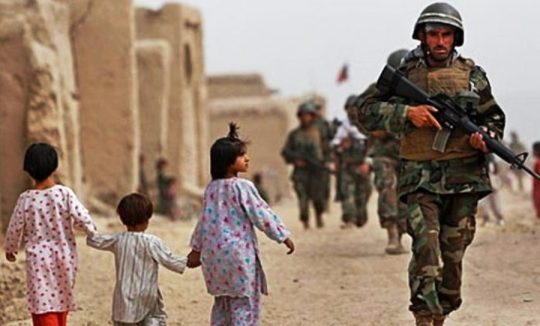
It is time to adopt a practical policy based on what will work and is in our allied interests, rather than by funding the aspirations of progressive politicians who have no real understanding of Afghanistan.
First, we must establish a clear post-‘state-building’ strategy - with achievable objectives. We must return to the policy and operational format we know will work - cooperation with Afghan tribal leaders and militia. This type of force was used to achieve the initial victory in 2001. Empowered warlords and regional leaders were the force multiplier that worked as the Afghan Militia Forces - and can again, in partnership with our Special Operations Forces work now. Intelligence collection and limited military operations should be our focus.
There is no way around it. One has to play the Great Game. Think tribal rather than central. Afghan nationhood is a liberal Western wet dream.
The central government is weak and corrupt just like all the other rulers of the past. The Afghan National Army is not as strong as it is on paper. It can hardly prop itself up rather than any government. Most of the Afghan National Army troops have stronger tribal loyalties than to the concept of a nation. Since the tribal chiefs play both sides to hedge their bets, it's no wonder 'their' people do what they're told. The Taliban know this because that has always been the Afghan way, so the tribes go with them. Provided the Taliban honour their promises to the tribal chiefs, the Taliban can do what they want.
On one hand, the tribes won't now be too bothered by central government and have a large pool of Western-trained troops to prop them up. On the other hand, they now have to do business formally with the Taliban again. Largely in order to get their hands on Western-supplied aid that will surely follow after the Americans leave.
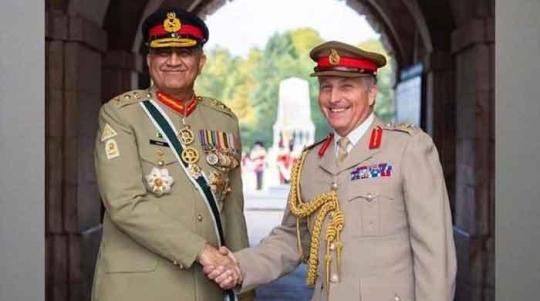
Second, we must accept the reality of Pakistani influence in Afghanistan - and work with the Pakistanis to counter al-Qaeda and the other militants now attacking Pakistani targets within Pakistan. Pakistan has made great advances in securing the tribal areas on the other side of the border and they have always been the de facto control of much of the Taliban force capacity, such as the Haqqani network. Working with Pakistan is the best option within the current circumstance.
‘Endless wars’ are not an American value. The use of the US military must only be used in response to genuine threats, when American interests are at stake or lives in danger. Withdrawal of conventional military forces and discontinuing nation building is in the US interest: leaving Afghanistan is not.
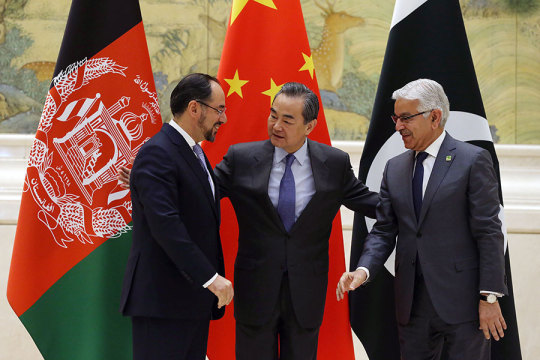
Third, make Afghanistan China’s problem. Afghanistan could easily become a hotbed for growing Islamic extremism, which would to some extent affect stability in Xinjiang.
It is not without reason that Afghanistan is known as the “graveyard of empires”. The ancient Greeks, the Mongols, the Mughals, the British, the Soviet Union and most recently the US have all launched vainglorious invasions that saw their ambitions and the blood of their soldiers drain into the sand. But after each imperial retreat, a new tournament of shadows begins. With the US pulling out of Afghanistan, China is casting an anxious gaze towards its western frontier and pursuing talks with an ascendant Taliban. The burning questions are not only whether the Taliban can fill the power vacuum created by the US withdrawal but also whether China - despite its longstanding policy of “non-interference” - may become the next superpower to try to write a chapter in Afghanistan’s history.
Beijing has held talks with the Taliban and although details of the discussions have been kept secret, government officials, diplomats and analysts from Afghanistan, India, China and the US said that crucial aspects of a broad strategy were taking shape. An Indian government official said China’s approach was to try to rebuild Afghanistan’s shattered infrastructure in co-operation with the Taliban by channelling funds through Pakistan, one of Beijing’s firmest allies in the region. China is Pakistan’s wallet.
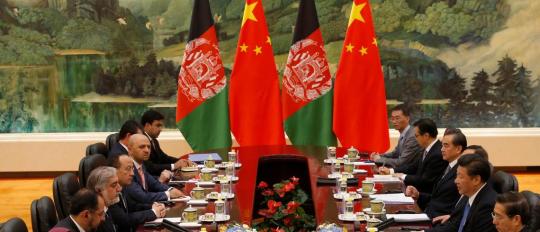
It has been reported that Beijing has been insisting that the Taliban limit its ties with groups that it said were made up of Uyghur terrorists in return for such support. The groups, which Beijing refers to as the East Turkestan Islamic Movement, are an essential part of China’s security calculus in the region. The ETIM groups were estimated by the UN Security Council last year to number up to 3,500 fighters, some of whom were based in a part of Afghanistan that borders China. Both the UN and the US designated the ETIM as terrorists in 2002 but Washington dropped its classification last year. China has accused the ETIM of carrying out multiple acts of terrorism in Xinjiang, its north-western frontier region, where Beijing has kept an estimated 1m Uyghur and other minority peoples in internment camps.
In a clear indication of Beijing’s determination to counter the ETIM, Wang Yi, China’s foreign minister, exhorted counterparts from the central Asian states of Kazakhstan, Uzbekistan, Kyrgyzstan, Tajikistan and Turkmenistan this year to co-operate to smash the group. “We should resolutely crack down on the ‘three evil forces’ [of extremism, terrorism and separatism] including the East Turkestan Islamic Movement,” Wang said in May according to Chinese news media which I follow.
The importance of this task derived in part from the need to protect large-scale activities and projects to create a safe Silk Road. Silk Road is one of the terms that Chinese officials use to refer to the Belt and Road Initiative, the signature foreign policy strategy of President Xi Jinping to build infrastructure and win influence overseas.
An important part of China’s motivation in seeking stability in Afghanistan is protecting existing BRI projects in Pakistan and the central Asian states while potentially opening Afghanistan to future investments. China would have to more actively support efforts to ensure political stability in Afghanistan. So make them work for it. Western powers need to leverage China’s problems in Xinjiang to be more active in Afghanistan.
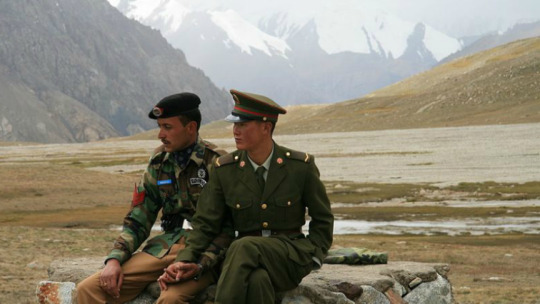
International media outlets and intelligence agencies worldwide have been circulating reports pointing toward the creation of a Chinese military base in the Wakhan Corridor of Afghanistan’s Badakhshan province for a while now. Although China has not embarked on militarisation programs on foreign soil historically, and has profusely denied the rumours about building an Afghan “mountain brigade,” China’s first overseas military base in Djibouti provides an example of China’s newly adopted strategy of leveraging economic influence to further its strategic objectives. There’s even some chatter amongst Chinese officials that Beijing may entertain the idea of being part of a future UN international force should one be needed in Afghanistan (a bad idea but hey, let China find out first hand for itself).
The Afghan government was able to maintain a measure of stability largely because of the superiority of US air support. The drones, gunships, helicopters and heavy air artillery were unmatched by the Taliban. But when the US leaves, that advantage will evaporate. China’s imperative to create overland trade routes to Europe and the Middle East may draw it inevitably into Afghanistan’s domestic strife.
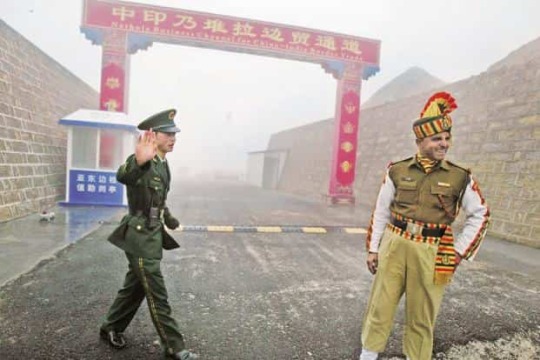
Of course China’s forward policy in the Wakhan Corridor needs to be assessed with a critical eye. Although on one level it seems to be motivated primarily by the threat of radicalisation, China’s interest in the region is also contingent on the strategic role that Afghanistan is capable of playing in the larger scheme of things. Despite China’s vehement denial, there seems to be sufficient evidence available indicating a definite military build up in the region, which provides China with an opportunity to showcase its ability to transform into a balancing force in the regional dynamics. I think that is a trade off that both America and Europe can afford to concede under the current circumstances.
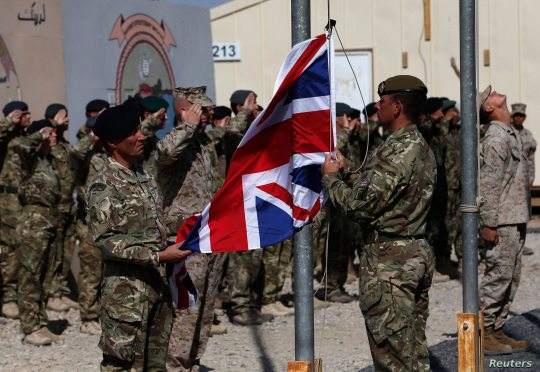
In conclusion In the face of failure, there is an impulse to move on and not ask “what led to this?” But to avoid a reckoning with our follies is to risk their repetition, or worse.
it is probably too late to salvage either the civil or military situation in Afghanistan. It almost certainly is too late to salvage it with limited in-country U.S. forces, outside U.S. airpower and intelligence assets, and with no real peace agreement or functional peace process. Limited military measures are not the answer, and neither is simply reinforcing the past processes of failure. Tragic as it may be, withdrawal may not solve anything and may well make conditions worse for millions of Afghans, but reinforcing failure is not a meaningful strategy.
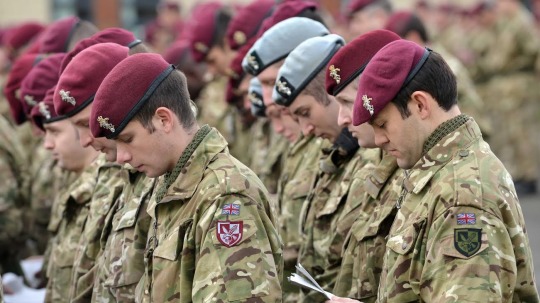
I do feel strongly that both the American and British governments must establish a clear path of redemption so that those who served and the families who sacrificed loved ones know that their loss was not wasted. At the same time our civilian governments must limit missions to intelligence collection and counter-terrorism missions that will prevent the metastasis of al-Qaeda or Isis in the region should the Afghan government fall. How we balance these two is going to be very interesting to follow in the next chapter in Afghanistan’s tortured history.
I apologise for the length of this post. This has been a hard post to write because of the subject matter and the many conflicted emotions and memories I have of my time in Afghanistan. I wish I had all the answers but I suppose the beginning of wisdom would be to know how to ask the right questions. Because we didn’t ask the right questions when we went in, we ended up making a real mess of it.
There is an understandable desire to bring all our allied troops home safe and that not another life is lost there. Yet I doubt this policy of withdrawing all troops will bring peace to anyone, not to us and most of all, the Afghanis themselves. As always in war it is the native population that will bear the real cost of war, in this case women, girls, and others brutalised under Taliban rule. What lies for them if the Taliban regain power to govern the country in their image is something I care not to imagine but retain a deep foreboding of their continued suffering. Ordinary Afghanis just want a respite from war and have a chance to live in peace, but without having us foreigners or the Taliban around. It is hard to imagine that happening at all. Our desire to save our soldiers’ lives set against ordinary Afghanis being left at the mercy of the Taliban is one of those humbling and brutalising trade offs that any war can only offer.
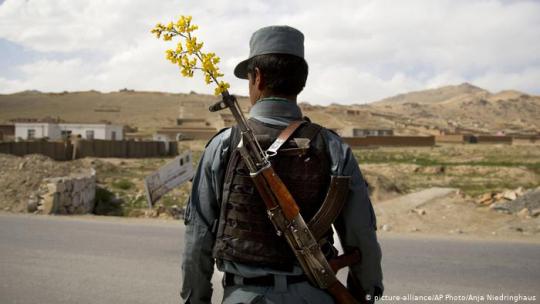
Near the end of his famed novel, The Great Gatsby, F. Scott Fitzgerald described two of his privileged characters, Tom and Daisy, as “careless people” who “smashed up things and creatures” and then “retreated back into their money or their vast carelessness” to “let other people clean up the mess they had made.”
That description applies to America as a whole but also to we Brits and other Europeans, especially when we tire of a misguided war. Americans and we Brits are a careless people. In both Iraq and Afghanistan, we smashed up things and human beings with abandon, only to retreat into our materialism. No scratch that, returning soldiers retreated into themselves struggling with PTSD whilst the rest of our citizenry carried on with their own material struggles and their insipid culture wars. The point is we always leave others to clean up the mess in a very bloody fashion that never troubles our conscience.
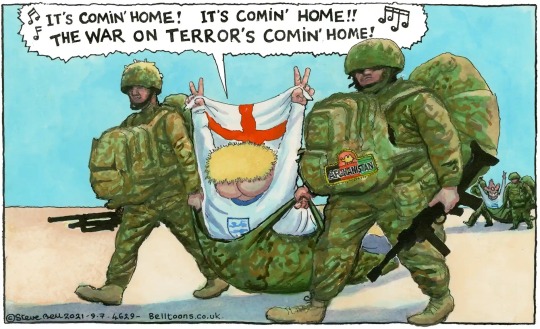
Count on us, probably sooner rather than later, doing precisely the same thing in Afghanistan. Again.
Thanks for your question
#question#ask#afghanistan#war#terrorism#warfare#history#america#britain#taliban#pakistan#china#south asia#security#intelligence#europe#un#isaf#nation building#politics#power#military#personal
163 notes
·
View notes
Text
Alright, let's talk about attachment
I can’t find clear information on when exactly the non-attachment rule was added to the code. It was either soon before or soon after the great sith war. Either way, for the VAST majority of the existence of the Jedi, it wasn’t a thing. Jedi got married and had families for over 20000 years, then added the non-attachment rule, which ultimately led to their destruction. And before anyone tries to tell me I believe they deserved to be genocided, I don’t. I have never actually seen anyone say that, but I see people argue against it constantly, and imply anyone who doesn’t think the Jedi were perfect and blameless thinks that. I don’t think they deserved to die, I think they needed to change. And Yoda says that himself, many times. The Jedi weren’t prepared for the return of the sith, or the war. They had separated from the military 1000 years before, and the galaxy was in relative peace all this time, so the order’s role changed to one that worked very well with their rules. Detachment meant they could be impartial when overseeing political disagreements, lack of possessions meant they would be focused on the mission at hand and not prone to taking bribes, and distancing themselves from the general population meant they were more or less uniform, and could be trusted not to side with someone for personal reasons.
All of this falls apart once they become an army again. Impartiality is a flaw when they have to defend one side at all cost and not even allow themselves to consider compromise. Lack of possessions and attachment to people means they are prone to taking unnecessary risks, because they have nothing to lose, and do things like send 14 year olds into battle, thinking of the “greater good” over the safety of children. And the order being a monolith, with set rules and philosophy distinct from the rest of the population meant the Jedi trusted Dooku long after they should have stopped, because he used to be a Jedi after all, surely he still follows the code.
Now, I am not saying non-attachment is always bad, I think it served a very specific purpose in the order, and to some extent worked for many years. However.
Humans are a social species. Human babies NEED physical contact and affection to develop physically. Children need a stable, strong, and supportive relationship to their caregiver to properly develop psychologically. And after last year I don’t think anyone will argue that adults don't need connection with other people just as much. And not just shallow interactions, but open affection and love. Love of any kind, because claiming that the Jedi only forbid romantic love is just untrue. I think people tend to forget that "Compassion, which I would define as unconditional love, is essential to a Jedi's life. So you might say, that we are encouraged to love." isn’t the actual doctrine, it’s a literal pick up line that Anakin uses on Padme.
Ahsoka and Obi-Wan both get criticized by other Jedi for their entirely platonic attachment to Anakin, and vice versa. Now, humans are the most common species in the galaxy, and in the Jedi order. Many other species are near-human, so it’s safe to assume at least some, if not most of them also need that companionship and affection to develop and live happy and stable lives. I do believe that non-attachment is a valid philosophy and chosen path in life if done carefully and within reason, I just don’t think we have a single major character that actually applies to. And chosen is an important word here. Jedi don’t get much of a choice. I’m not trying to start the baby-stealing debate here. I hear the argument of ‘force sensitives are dangerous if left untrained, and said training should start as early as possible’. I think finding a way to deal with that problem was an insanely complicated decision, and taking children into the temple as young as possible is not a bad solution. I don’t entirely agree with not letting them see their families later, (especially since in legends Obi-Wan was allowed to visit his family, which implies Anakin couldn’t go free his mother specifically because he was already too attached), but the idea is sound. I do also understand that no one is forcing Jedi to stay in the order and they can leave for whatever reason at any time. But that isn’t exactly a free choice either. Leaving the order means leaving the only home you remember, the only people you know to make your own way in the galaxy, and staying with those people means you can never fully love them. It’s a difficult solution to a complicated question, and for the most part, it worked (not always, and not exactly as intended, but I’ll come back to that.) Children grew up in the order, were trained to control themselves and the force, and became Jedi who were impartial, patient, and balanced. But everything falls apart when you introduce someone who wasn’t raised in the temple.
In The Rising Force, 13 year old Obi-Wan had barely been off Coruscant in his life. He describes himself as sheltered and unaware of all the pain in the galaxy, and says it was done on purpose, so younglings wouldn’t have to face the dark side before they were ready for it. But Anakin had seen nothing but darkness, pain and injustice before he joined the order. He was severely traumatized, and while the temple might have had some ways of dealing with trauma and PTSD in adults, they had no experience in treating the same in a child, because their children were kept safe and protected. The idea of letting go of your pain and fear only works if you know you have a safe place to come back to, if you’ve spent the first decade or so of your life in the most protected place in the galaxy. Anakin spent the first decade of his life as a slave. He couldn’t let go of his fear, because fear was what kept him alive. Fear is not irrational if you are constantly in danger, it’s what protects you, keeps you aware of the limits you can push before you get punished. And that mindset doesn’t fade just because you’re out of that situation, especially if your only family, the closest person to you, is still facing that danger every day.
I’ve seen people use every excuse possible to explain why Anakin didn’t see his mother again to avoid blaming the council, including, and I shit you not, “He just didn’t have her comm number”. But to me that seems disingenuous, when we see in his first meeting with the council that they already consider him too attached. It's one of the main reasons they don’t want him to be trained, so it seems logical that they wouldn’t allow him to see her once he became a padawan. I also want to mention that what Yoda says, “Fear is the path to the dark side. Fear leads to anger, anger leads to hate, hate leads to suffering.” Is just… blatant catastrophizing. Right? Like we can all see that the escalation is not rational there at all. Maybe it could apply to something else, but not to a child who just left his mother for the first time in his life and went from a tiny dustball in the middle of nowhere to the most populated planet in the galaxy, and is now being tested by a bunch of old people with the power to decide his future. Obviously he’s afraid, and obviously he’s not dealing with it the way Jedi younglings do. That, in and of itself doesn't doom him to fall. Also what Yoda misses there is that suffering leads to fear. This is a closed loop, and one that has defined Anakin’s entire childhood.
Let’s come back to how the system doesn’t always work. The way I see it, most of the characters we see are attached. Obi-Wan is considered one of the greatest Jedi of his time. Windu describes him as “our most cunning and insightful Master—and our most tenacious”. And yet, he was not insightful enough to look past his love for Anakin, his attachment, and see how close to falling he was. Ahsoka was so attached to Anakin she refused to listen to Maul on Mandalore, refused to even consider the posibility he could fall. She was arguably the person with the best shot at preventing the empire forming at that point, and she loved anakin so much she doomed him and the entire galaxy. Aayla admitted to thinking of Quinlan as her father, and also, apparently in legends had a long relationship with Kit. Even Mace didn’t follow the code when he decided to kill Palpatine, which directly led to his death and the empire. He also indirectly caused the war to start. According to wookiepedia “Windu viewed Dooku as the shatterpoint of the entire Separatist movement, which meant striking Dooku down would theoretically end the imminent clone war before it even began. However, Windu's prior attachments to Dooku clouded his judgment.” I’m not even going to mention Kanan and Ezra, who are obviously family.
So basically everyone is attached and lying about it. How has no one thought that maybe this isn’t the healthiest way to live and tried to change the code? Well, I have a theory, and it’s Yoda. He was 900 years old when he died, and was on the council for the vast majority of his life. I can’t find when exactly he became grand master, but it’s safe to assume he held some degree of power over the entire order for most of a millennium. At the end of TPM he tells Obi-Wan “Confer on you the level of Jedi knight, the council does. But agree with your taking this boy as your padawan learner, I do not.” Then he reverses that decision by himself. So either he has the power to veto the council’s word, or who gets trained is entirely up to him. Either way, not great, considering his lifespan is so much longer than most Jedi, and therefore his approach to life is vastly different. Humans need love and closeness to live. However, while we don’t know much about Yoda’s species, it probably isn’t a social one. You could count all the characters of this species on two (human) hands, and Yoda lived in complete isolation for 20 years on Dagobah, and only went a little bit insane. They are naturally rare, and therefore probably lead solitary lives in nature. Moreover, Yoda outlived every master who trained him, and almost every padawan he trained himself, (there’s a great post about that here) so even if he wasn’t naturally predisposed to non-attachment, he would have had to learn it to deal with all the loss he had to live through over the years.
A lot of people think that Anakin fell because he had attachments, which is not true. He fell because of how his attachments played out and/or ended. The most obvious example being Palpatine, who used Anakin’s trust and friendship to groom him for over a decade and actively undermine Anakin’s trust towards anyone else, especially the order. (more on that here). Obi-Wan refused to take on the role of a father figure that Anakin tried to shove him into, so he turned to someone who did accept it. It’s not Anakin’s fault that it turned out to be the worst person alive, nor can we expect him to notice when he’s known Palpatine since he was a child. Another failure of jedi non-attachment, because a loving parent or guardian would not let their child be used as a bargaining chip when the most powerful politician in the galaxy blackmailed the order into allowing him to meet Anakin regularly, but a distant teacher and detached knight thinking of the greater good might. The other attachments Anakin had were taken from him (Shmi and Ahsoka, the last orchestrated by Palpatine who was fully ready to give her the death penalty to make Anakin more unstable), or he was forced to lie and hide them, compromising his vows as a Jedi (Padme) or refused to choose Anakin over the order/their principles (Obi-Wan, and again Ahsoka, and to some extent Padme, but he’d already fallen then). All these people had every right to make the choices they made, but it wasn’t the act of loving them that made Anakin turn to the dark side, it was how those attachments played out.
I think everyone agrees that Yoda is as detached as a Jedi should, if not can, be, and that didn’t prevent Dooku from falling. We see that explored in more detail with Barriss and Luminara. Luminara is detached and distant, she’s fond of Barriss, but their relationship is not familial in the slightest, and she repeatedly shows her willingness to put the greater good and the mission before Barriss’ safety and even life. And yet Barriss still falls. A complex combination of events and choices caused each of those characters to fall, not the simple presence or absence of attachment.
And lastly, just as attachment can make you unstable if your relationship with that person is unstable, it can also make you stronger. There is a reason Anakin and Obi-Wan were the face of the army. Not only did their obvious attachment (the strongest between two jedi we are shown) make them more relatable to the public, but they, when working as a team, are shown repeatedly to be more or less undefeatable. They spend half of aotc flinging themselves off great heights because they know the other will be there to catch them. They know from years of experience that they have backup and they know each other well enough (or force bond communicate) that they can trust the other will be where he needs to be to help/save them. Contrast that to how Windu and Palpatine fight in rots once the window breaks- very carefully, clearly holding back to keep themselves safe. Neither of them has backup until Anakin arrives, but until the last second they can't be sure which one he will choose. Anakin and Obi-Wan fight the same way on Mustafar, especially when balancing on that thin bridge. No acrobatics, swinging arms to keep balance, keeping their distance, being almost uncharacteristically careful compared to how they treated heights in aotc, in tcw, and on the invisible hand in rots, because they both know the other won't catch them if they fall this time.
161 notes
·
View notes
Photo
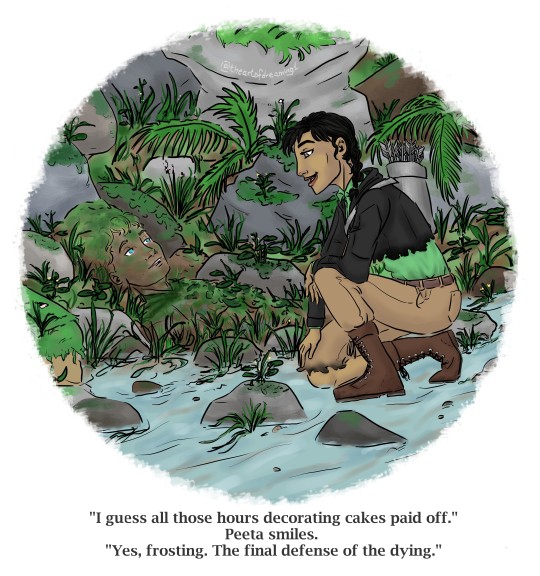
Here is my attempt at portraying Peeta’s camouflage skills convincingly 😅😅
As usual, my thoughts regarding this week’s prompts and random thoughts on chapters 19-21 are below the cut.
heart
While I love all the banter between Katniss and Peeta, I think my favorite of these three chapters is: “Trust me. Killing things is much easier than this,” I say. “Although for all I know, I am killing you.” “Can you speed it up a little?” he asks. “No. Shut up and eat your pears,” I say. A classic 😄
mind
I always imagined that Cato went after Thresh before coming for Katniss and Peeta because a) Thresh took the backpack for District 2 (which contained the body armor that would make dealing with Katniss’s arrow so much easier) and b) Thresh killed Clove and Cato wanted to avenge her... Although I have no idea how Cato ended up killing Thresh... he was doing pretty well for himself in his grass-y area... Maybe the Gamemakers wanted to punish Thresh for not killing Katniss and generated that thunderstorm and rain to force Thresh out of his refuge, which would give Cato a fair chance to kill him, I guess...
soul
Lol, honestly, since Peeta just generally seems to be motivated by kindness and love/caring, I don’t think it took much for him to keep the star-crossed lovers angle alive (I could easily imagine him actually noticing Katniss in the willow tree early in the Games and offering to take care of the District 8 girl, so the Careers would get the hell out of there, away from Katniss)
Chapter 19:
Peeta, who’s been wounded, is now my ally. [...] I’d loathe any tribute who didn’t immediately ally with their district partner. Besides, it just makes sense to protect each other. - Honestly, this just highlights what a kind person Katniss is, despite her aloof front; her innermost instinct is always to stick together and to protect. Because it doesn’t really make sense for her to team up with Peeta - she knows he’s wounded and won’t be of much help to her, her chances of survival are way better if she stayed on her own, but it’s not something she’d ever consider now that they are allowed to form a team (and only then does she even factor in the whole ‘star-crossed lovers of district 12′ -angle)
Peeta, it turns out, has never been a danger to me. The thought makes me smile. - Aww 😊 (but also, how heart-breaking that the Capitol will do everything in their power to change that, to make Peeta become a danger to Katniss 😢)
He’s very hard to predict, which might be interesting under different circumstances - Okay, but this just makes me think of that exchange in Gilmore Girls when Paris and Rory talk about how you know a guy is right for you: “Someone who’s compatible but not compatible.” “Yeah, kind of. I mean, you respect each other’s opinions and you can laugh at the same jokes, but I don’t know – there’s just something about not quite knowing what the other person’s gonna do at all times that’s just really exciting.” - fits these two to a T 😏
In fact, I’ve just about decided I’m on the wrong track entirely, that a wounded boy would be unable to navigate getting to and from this water source, when I see the bloody streak - Okay, but how flipping tough is Peeta?! He’s severely injured, with multiple tracker jacker stings and he drags himself to this terrain that is almost impossible to navigate for someone in his condition - a sturdy dandelion, indeed!
“You’re here to finish me off, sweetheart?” - What an entrance after having gone AWOL for quite a couple of chapters 👌🏼👏🏼
“Remember, we’re madly in love, so it’s all right to kiss me anytime you feel like it.” I jerk my head back but end up laughing. “Thanks, I’ll keep it in mind.” [...] “Katniss?” Peeta says. I meet his eyes, knowing my face must be some shade of green. He mouths the words “How about that kiss?” I burst out laughing - He’s lying in a river bed, slowly dying, and he can still make her laugh 😊
“You know, you’re kind of squeamish for such a lethal person” - It’s such a small comment, but I can’t help but think that Peeta is just kind of intrigued to discover all these little idiosyncrasies that make up the ever-elusive Katniss Everdeen ;)
Impulsively, I lean forward and kiss him, stopping his words. - Aww, she doesn’t even want to consider him dying, so she spontaneously decides to cut him off with a kiss👀👀 Honestly, at this point Peeta has elicited 2 (!) spontaneous kisses (the kiss after the chariot ride and this one) from Katniss, who generally isn’t that big on touching people
“You’re not going to die. I forbid it. All right?” - Stubborn, protective Katniss... But also reminds me of their rooftop “date” in CF and the “Then you’ll allow it?” “I’ll allow it” - exchange
I kiss him awake, which seems to startle him. Then he smiles as if he’d be happy to lie there gazing at me forever. He’s great at this stuff. - KaTNisSs, gurl... 🙄🤦🏼♀️
Chapter 20:
But I knew he was injured. And still I came after him. I’m just going to have to trust whatever instinct sent me to find him was a good one. - The very best of instincts, Katniss, don’t you worry😉
Peeta’s struggling to get up when I reach the cave. “I woke up and you were gone,” he says, “I was worried about you.” - Gah, why are the both of them so good?! They just care for and worry about each other 24/7
“How do you feel?” “Better than yesterday. This is an enormous improvement over the mud,” he says. “Clean clothes and medicine and a sleeping bag... and you.” Oh right, the whole romance thing. - Oh Katniss...😐 I reach out to touch his cheek and he catches my hand and presses it against his lips. I remember my father doing this very thing to my mother and I wonder where Peeta picked it up. - Where did Peeta pick this up? From a time his family was less dysfunctional? Observing couples in the town square? Or is he a fricking disney prince and these things come natural to him? Questions, questions...
“You didn’t sleep,” Peeta says. “I’m all right,” I say. But the truth is, I’m exhausted. “Sleep now. I’ll keep watch.” [...] I test his cheek. Hot as a coal stove. He claims he’s been drinking, but the containers still feel full to me. I give him more fever pills and stand over him while he drinks first one, then a second quart of water. - These two are just too stubborn to take proper care of themselves - good thing that each of them is adamant to force the other to sleep/drink/eat when necessary
“Besides I like watching you sleep. You don’t scowl. Improves your looks a lot.” - When presented with the choice of being flirty vs being a cheeky little shit, Peeta will choose being a flirty cheeky little shit every time 😂

“I’m going to make soup,” I say. “Don’t light a fire,” he says. “It’s not worth it.” - Okay, but what he’s actually saying is “I’m not worth it” 😭😭
Katniss telling that story about buying Prim’s goat😊... A young buck, probably a yearling by his size. His antlers were just growing in, still small and coated in velvet. [...] Beautiful. - We are all very much aware of Peeta’s appreciation for beauty, but the same does apply to Katniss, too (she’s just overall more pragmatic)
“Was it [the goat] still wearing the pink ribbon?″ he asks. “I think so,” I say. “Why?” “I’m just trying to get a picture,” he says thoughtfully. - Peeta is so detail-oriented! I have this theory that this is actually something that enables him to overcome his hijacking; we catch glimpses in MJ of how he inches himself out of his condition by asking/focusing on small details or things most people would dismiss as trivial (Katniss’s favorite color, the color of her dress visiting District 7, her Dad singing the Hanging Tree when Peeta was 6 or 7 years old...) and I feel like it makes a lot of sense - his tormentors in the Capitol either wouldn’t have access to distort these moments or not even consider them to have any significance (since they are all about big, flashy gestures in the Capitol), so these memories would remain untouched. Luckily, Peeta seems to live by Robert Brault’s words: “Enjoy the little things, for one day you may look back and realize they were the big things. “
“Really? What did you cost me again?” I ask. “A lot of trouble. Don’t worry. You’ll get it all back,” he says. - Well, he’s going to cost her a lot more trouble in the future - but we know he’s going to make up for it and bring her much happiness, too 😊
“You’re not risking your life for me.” “Who said I was?” I say. [...] “Of course I’m not going.” [...] “You’re such a bad liar, Karniss.” [...] Anger flushes my face. “All right, I am going, and you can’t stop me!” “I can follow you. At least partway. I may not make it to the Cornucopia, but if I’m yelling your name I bet someone can find me. And then I’ll be dead for sure,” he says. - Soo.. their love language is offering to sacrifice their life like it’s nothing, huh?! 😳😅
Peeta eats without complaint, even scraping out the pot to show his enthusiasm. He rambles on about how delicious it is, - lol, sounds like a husband trying to get back on his wife’s good side after they had a row 😂
I clamp my hand over his mouth and nose hard, forcing him to swallow instead of spit. He tries to make himself vomit the stuff up, but it’s too late, he’s already losing consciousness. - Ah, the most important indicator of true love: having person A force-feed person B a sedative so they can run off to get them life-saving medicine ;)
Chapter 21:
I lie next to Peeta in the bag, trying to absorb every bit of his fever heat. It’s strange to be so physically close to someone who’s so distant. Peeta might as well be back in the Capitol, - Reminds me how in MJ she’s going to be so close to Peeta (mentally/emotionally) while he will be physically so distant (in the Capitol!)
a tiny orange one [backpack] [...] that must be marked with a 12 - Interesting how that backpack is orange, huh? Why is that? Are smaller backpacks generally orange (like the one Katniss already has) to be more visible or is this simply to connect the backpack to Peeta (though we don’t know his favorite color at this point)? Do the Gamemakers care whether Katniss gets a matching backpack? It just seems like an unnecessary detail to throw in🤔
The table has just clicked into place when a figure darts out of the Cornucopia, snags the green backpack, and speeds off. Foxface! - Honestly, this was a truly brilliant move; kudos! 👏🏼
[Clove] carefully selects an almost dainty-looking number [knife] with a cruel, curved blade. “I promised Cato if he let me have you, I’d give the audience a good show.” [...] “I think...” she almost purrs. “I think we’ll start with your mouth.” [...] she teasingly traces the outline of my lips with the tip of the blade. - Okay, but the idea of Clove cutting off Katniss’s lips is just all kinds of terrifying and disturbing 😨
“No! No, I-” Clove sees the stone, about the size of a small loaf of bread in Thresh’s hand [...] Thresh brings the rock down hard against Clove’s temple. [...] and I know she’s a goner. - Interesting how Katniss describes that rock that basically saves her life (or at least kills her assailant) as bread-sized, huh? “Your district... they sent me bread. [...] Conflicting emotions cross Thresh’s face. He lowers the rock and points at me, almost accusingly. “Just this one time, I let you go. For the little girl.” - Katniss mentions the bread from District 11 as a proof of her alliance with Rue (and the recognition of D11) and Thresh spares her; bread keeps saving her life (while it keeps representing acts of kindness)
Cato kneels beside Clove, spear in hand, begging her to stay with him. - I appreciate this small, humanizing moment with Cato
The last thing I remember is an exquisitely beautiful green and silver moth landing on the curve of my wrist. - I don’t know much about North American insects (not that I know that much about European insects either - just recently came across a relatively rare moth on my walks that I had never seen or heard of before) - is Katniss describing a special/noteworthy species of moth? Or is this a more literary symbolism kind of moth? (Just looked up some symbolism meaning of moths: change/transformation, seeking light; power of regeneration in some Native American mythology, hmm...)
#thgagain#thg#hunger games#katniss everdeen#peeta mellark#thg meta#thresh#my sketches and drawings#everlark
99 notes
·
View notes
Text
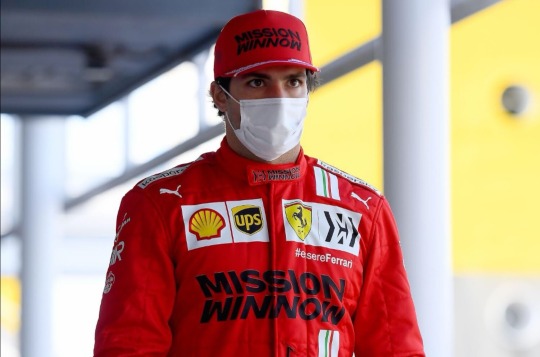
CARLOS SPEAKS HIS MIND
Montmeló 06 May 2021
For the Gran Premio Aramco de España di Formula 1, Scuderia Ferrari Mission Winnow’s Spanish driver, Carlos Sainz, granted a long interview to the official programme, in which he talked about himself, as a person and as a racing driver. Here is what he had to say.
We hear you are a burger connoisseur… what makes a great burger? Where was the best you ever had?
I LOVE BURGERS! I guess a great burger is defined by the patty and the bun. The extra ingredients play their part too…but without a juicy patty and a perfect bun you will never get top marks! I try to have a burger in every city we visit. Melbourne definitely has one of the best I´ve tried.
What’s the attraction of golf? We hear you play off a 9 handicap, so do you think you could play professionally if you put your mind to it? Of course, we presume you are better than your fellow drivers on the golf course…
Golf is the perfect way to clear your head from all other things and just enjoy three or four hours outdoors with friends or family. A round of golf requires full focus and it can get super competitive. You play against others but also against your own handicap. I like that. However, to play at a professional level I would have to give up racing, and I don´t see that happening for a while! I like to see other drivers picking up golf. If they practice enough, I´m sure they will lower their handicap quickly.
Where did the interest in boxing come from? What weight would you make if you fought professionally? Who’s you hero boxer?
My performance coach used to work with a professional boxer and he learned quite a lot back in the day. Some years ago, we decided to introduce it in my training routines and I really enjoy it. It is a sport that requires strength and pushes your cardio to the limit. It is also very technical, so the more you boxe the more you want to improve. I guess I would be middleweight or super middleweight, depending on the diet…and the burgers! Nowadays I follow a lot Canelo Alvarez and Ryan Garcia.
You’re known for having a pretty intense work ethic. Did that come from your dad? What did he teach you about preparation and pressure?
My dad has been a great support for me throughout my career and I have learned many things from him. Attention to detail is something that he took to a different level back in the day and I have embraced since I was very young. I´ve also learned from him that there is no gain in dwelling too much on a bad result or celebrating too much a good one. In both situations, you have to analyse carefully what happened, learn, improve, reset and move on to the next race.
Caco, Rupert and yourself seem to have a very strong relationship on both a personal and professional level. How important is having people around you? Did working in a bubble make you closer, or did you want to kill each other?
I think having the right people around you is key for any athlete. When you have full confidence in your personal team you can focus more on the sporting side and that translates into better performance. F1 is very peculiar because we travel to an incredible number of countries in 9 months, so you get to spend a lot of time with your team. In my case, I think we have found a great balance between us. We know how to differentiate between work and leisure. We follow a very professional approach to the sport, whilst having fun and enjoying the experience along the way.
Not so long ago people introduced you as ‘the son of Carlos Sainz’, now it’s more a case of some will introduce your father as ‘Carlos Sainz’s dad’. How does that play out around the dinner table at home with your dad?
We don´t really speak about it to be honest. I guess it’s just natural. When you are a kid, you normally get introduced as “the son of” and years ago I still had a lot to prove in the motorsport world. Now things have obviously evolved, but I don´t really think my father gets introduced as being my dad! He has earned the right to be recognised as King Carlos! What I must say is that neither of us like the “Junior” tag that sometimes comes along with my name, and he has happily accepted the “Senior” tag to avoid it!
One of the risks in moving to Ferrari was going up against one of the sport’s most highly-rated drivers. You’ve done that with Max, Daniel, Lando and now Charles? Are you a masochist?
This is Formula 1. The best 20 drivers of the world are here and, inevitably, you are going to have to compete against all of them if you want to become World Champion, whether they are team mates or not. It´s just part of the game. If you are scared of going up against any other driver, you are just in the wrong sport.
You’ve made some brave moves in your career: leaving the Red Bull Programme, finding your way to McLaren, then joining Ferrari. Do you find it easy to make big career choices?
I think the key behind any career choice is a proper decision-making process. Once you have analysed all the possible scenarios, with the information at your disposal at that time, you can evaluate your options and decide what is best for you. Personally, once I take a decision, I fully commit to it. Only time will tell if that decision was good or bad.
Being a Ferrari driver is a notoriously high-pressure role and public criticism can be vicious. How is being at Ferrari different to driving for McLaren, for Renault, for Toro Rosso?
Every F1 driver has a lot of pressure, not only Ferrari drivers. The key is not how much pressure there is, but how you handle it. Ferrari is expected to be at the top because it is the most successful team in the history of the sport. We share the same goal, which is to be back winning as soon as possible, and that inevitably sets the bar very high. I turn that ambitious goal into motivation rather than pressure, and it gives me strength to keep going.
When you were a youngster, you frequently held up Sebastian Vettel as the ideal role model. Was that politeness, given your place in the Red Bull Junior Team, or was Seb the driver you really looked up to?
I´ve known Seb for many years and he has always been a reference in my career. I was doing endless hours of simulator at Red Bull Racing when he was winning World Championships and I learned a lot from his way of doing things, in and out of the track. He is definitely one of the best drivers in the history of the sport and I will always consider him a role model in many ways.
You came through the Red Bull junior programme when the competition was intense with Daniel and JEV, Dany, yourself, Antonio Felix da Costa. What was that like? Were you all in constant competition? Did you ever worry about not making it?
All Junior programmes are designed to identify the best young talents out there. Of course, it was constant competition but in a healthy way. You want to prove yourself at all costs and every time you jump in a car you want to beat the other drivers, whether it’s a race or a test or even in the simulator. Knowing how difficult it is to get a seat in F1, you always have that fear of not making it. But if you commit yourself to it, you trust in your talent and you put the work in, the fears disappear and you just focus on giving your best.
Are you superstitious? And which football team do you support?
I´m not a superstitious guy. I have several routines that I like to follow during a Grand Prix weekend, but given each country, circuit and paddock is different you sometimes have to change and adapt those routines. The doubt about the football team is offensive…REAL MADRID forever!
59 notes
·
View notes
Text
Home is where the hurt is - Masterpost
“Jay, I don’t mind you busting your ass, but it’s 7pm. I’m about to close up, come on. Don’t you have anyone waiting for you at home?” His boss winked at him.
I do, probably, that’s the point, Jay thought bitterly.
Home is where the hurt is - Completed
What if recapture meant being held captive in your own home?
That’s how it feels for Jay at least. Sure, he’s allowed to ‘live his life’ and go to work, but at what cost? He has to thread carefully, hide every bruise, and when the clock hits 5pm and everyone’s happy to go home, Jay is an anxious mess mainly worried about what’s waiting for him at home that evening.
Main characters

Jay Fawcett (31)
Working as a reporter at a local newspaper. Loves his job, loves his colleagues. Definitely doesn’t want them to catch wind of what’s been happening to him, so he does what he can to hide his injuries. It’s too dangerous if people were to find out.
Sarcastic little shit until he pushes too far and fear sets in.
Zayne Dougall (34)
Small fry in a local crime gang with big plans. Blames a certain meddling reporter for ruining things. Even though he practically held him captive for the entire week and he couldn’t have done a thing. Now passes his time by terrorizing and pretty much stalking an increasingly frustrated Jay, but dabbles in new plans behind the scenes.
Characters and faceclaims
Chapters
AO3
Introductions:
1 - Intruder
2 - Consequences
3 - After hours
4 - Love in an elevator
'Recapture’:
5 - Flashbacks
6 - Keep quiet
7 - First visit
X - Let’s hang out sometime (Whumptober drabble)
8 - Hiding
9 - Spicy
10 - Training
Bonding weekend
11 - Whisked away
12 - Ch-ch-chains
13 - Paper cuts
14 - Smoke screen
15 - Manners
16 - Stressed
16.5 - ‘Cause I have other things to fill my time
17 - Day off
Office shenanigans
18. Smack talk
18.5 - Wakey wakey
19 - Bargaining
19.5 - Bday
20 - Laced
21 - Good vibrations
22 - Snapped
23 - Company first aid
When the past catches up
24 - Why me?
25 - Snoop
26 - Remember?
27 - In and out
28 - Name-dropping
29 - Wednesday
30 - Bad no-good day
31 - Loose ends
32 - Pay day
Mood swings
33 - DIY
34 - Interview
35 - Post-interview
36 - Broken pieces
37 - Banter
37.5 - Laura
Common enemy
38 - Cards on the table
39 - Truth
40 - Falling into step
41 - Bottled up
42 - Working together
43 - Study group
Breaking
44 - Back to business
45 - Thingy
46 - And they were...
47 - Weak man’s defence
48 - Show me
49 - Closing time
50 - Antagonising
Back to where it started
51 - Reminiscent
52 - Turned tables
53 - Long-time wish?
54 - Desperation
55 - Breaking news
56 - Epilogue
Drabbles
X - Talk (Continuation of 23 - Company first aid)
X - New shirt
X - Creative mind
X - Attention
X - Play (continuation of Attention)
X - Drive
X - Smokey bandit
X - Freedom (post epilogue)
X - Return of the smokey bandit (final arc)
X - Sweet dreams
X - Evening out
X - Easter day
X - Tying the knot
X - Lessons learned
X - Friendly advice (follow up to Lessons learned)
X - Everything (aftermath final chapter)
X - Morning rituals
X - Eager
X - GTFO
X - In plain sight
X - Hooligans
X - Sleeping beauty
X - For birds (continuation of Sleeping beauty)
X - Broken night (continuation)
X - Tempting fate (continuation)
X - Lenient (Continuation/ alt bad ending)
X - Worth it (follow up to bad ending)
X - What’s cooking (FLUFF)
X - Untouchable
X - Random acts of kindness
X - Duct tape
X - Weapon
X - Executioner (Follow up)
X - Smoke break
X - Presents
X - Cycle of abuse
X - Between dreams and reality
X - Cheap entertainment
X - A terrible price (AU)
X - Agonising (Zayne whump)
X - Public enemies (Public whump :3)
X - Relive (aftermath)
X - Checking it twice (xmas drabble)
X - Jaybird screaming in the dead of night
X - Zip zip
X - Where else to go
X - Infection
The Dennis Whump files
X - Interference
X - Their respective roles
292 notes
·
View notes